2-Day Cultural Exploration in Gdansk, Poland
Gdansk, Poland
2 days
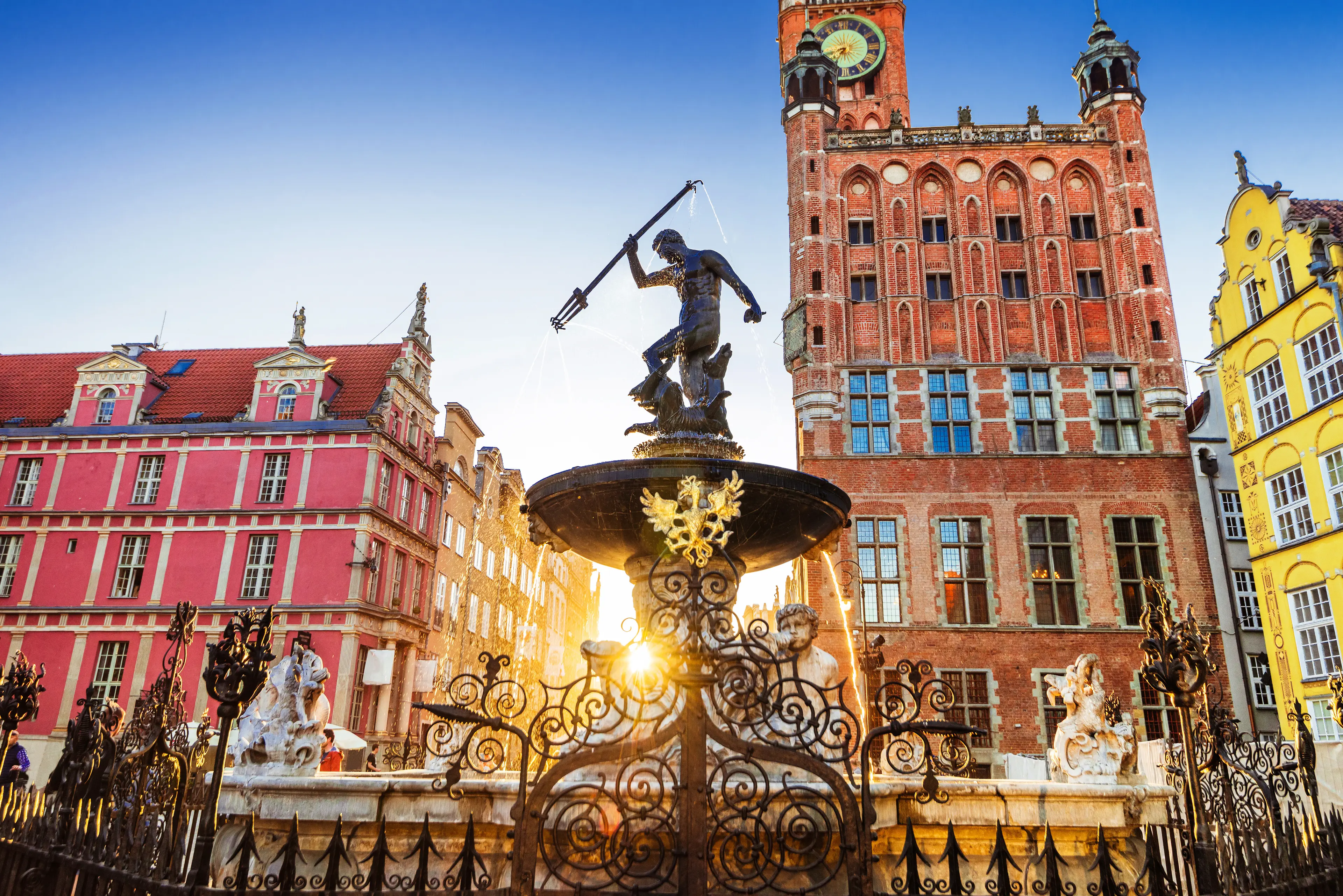
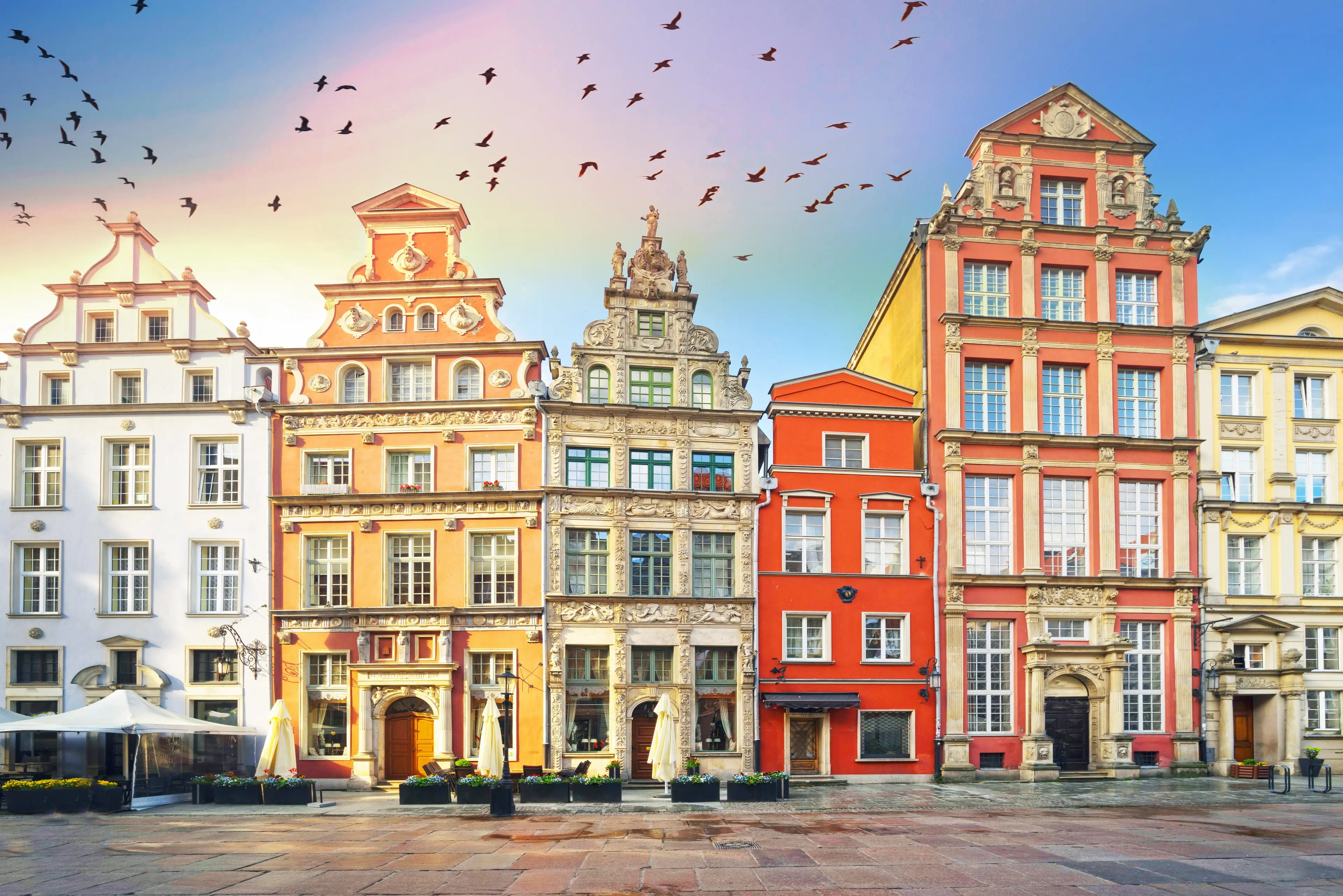
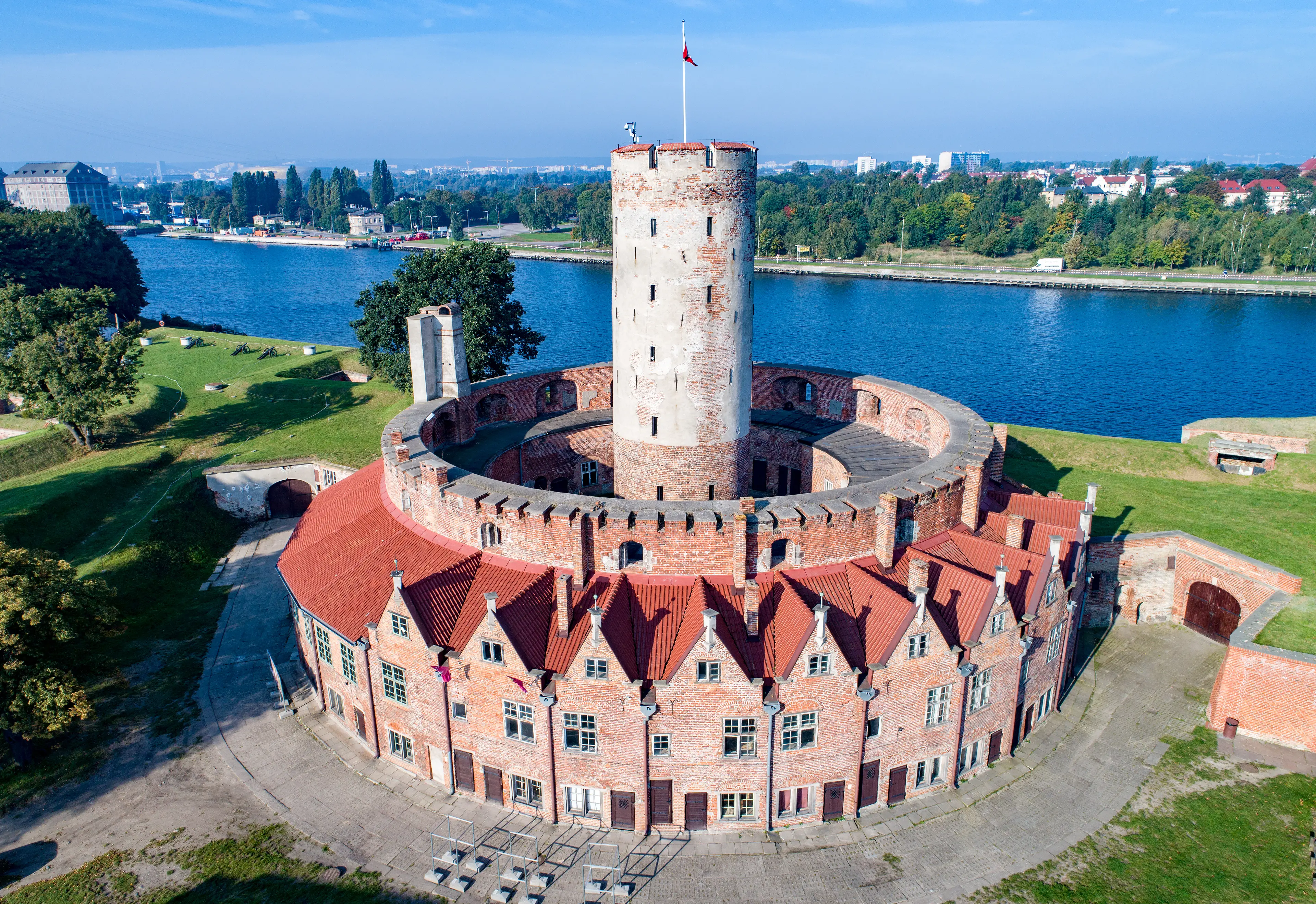
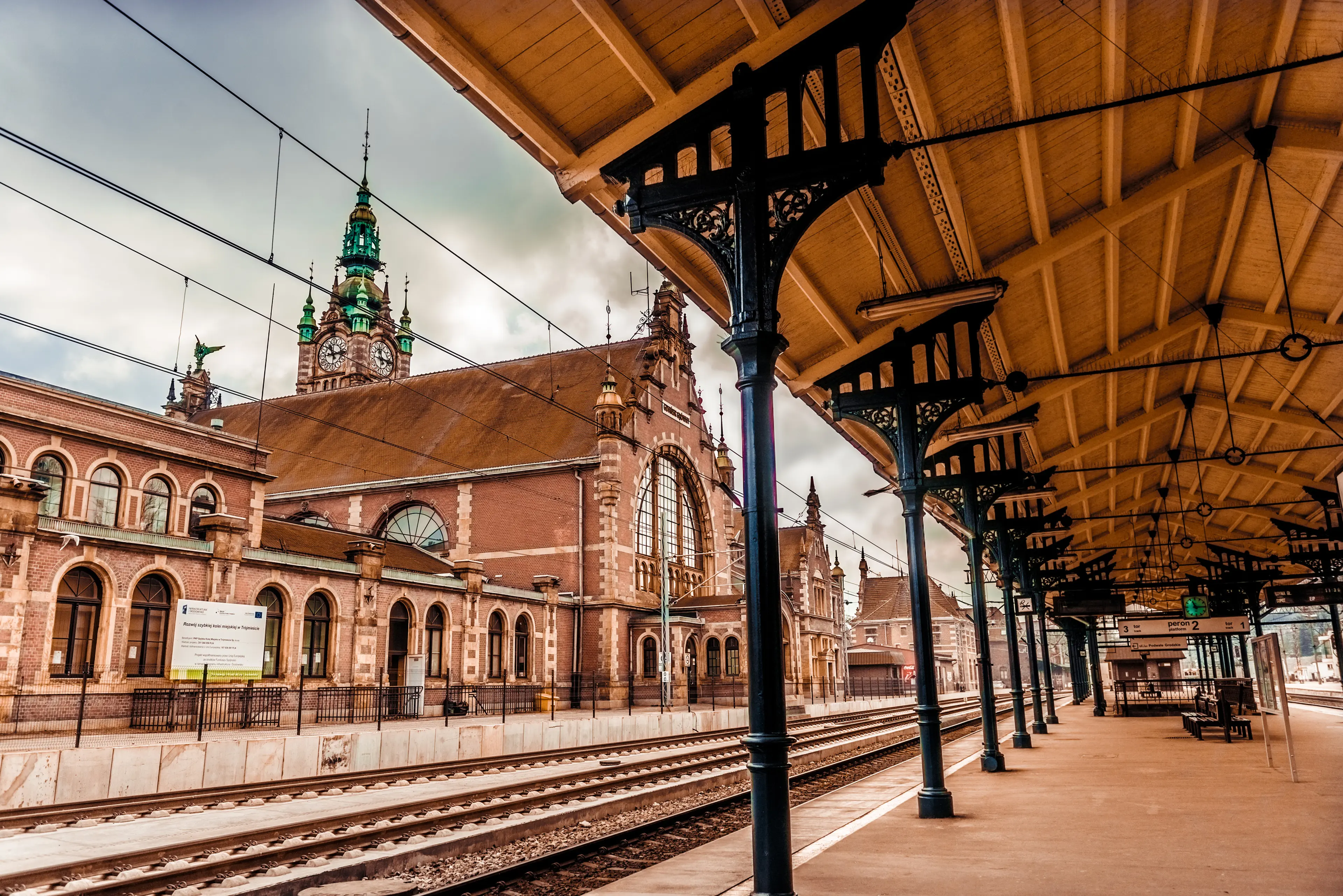
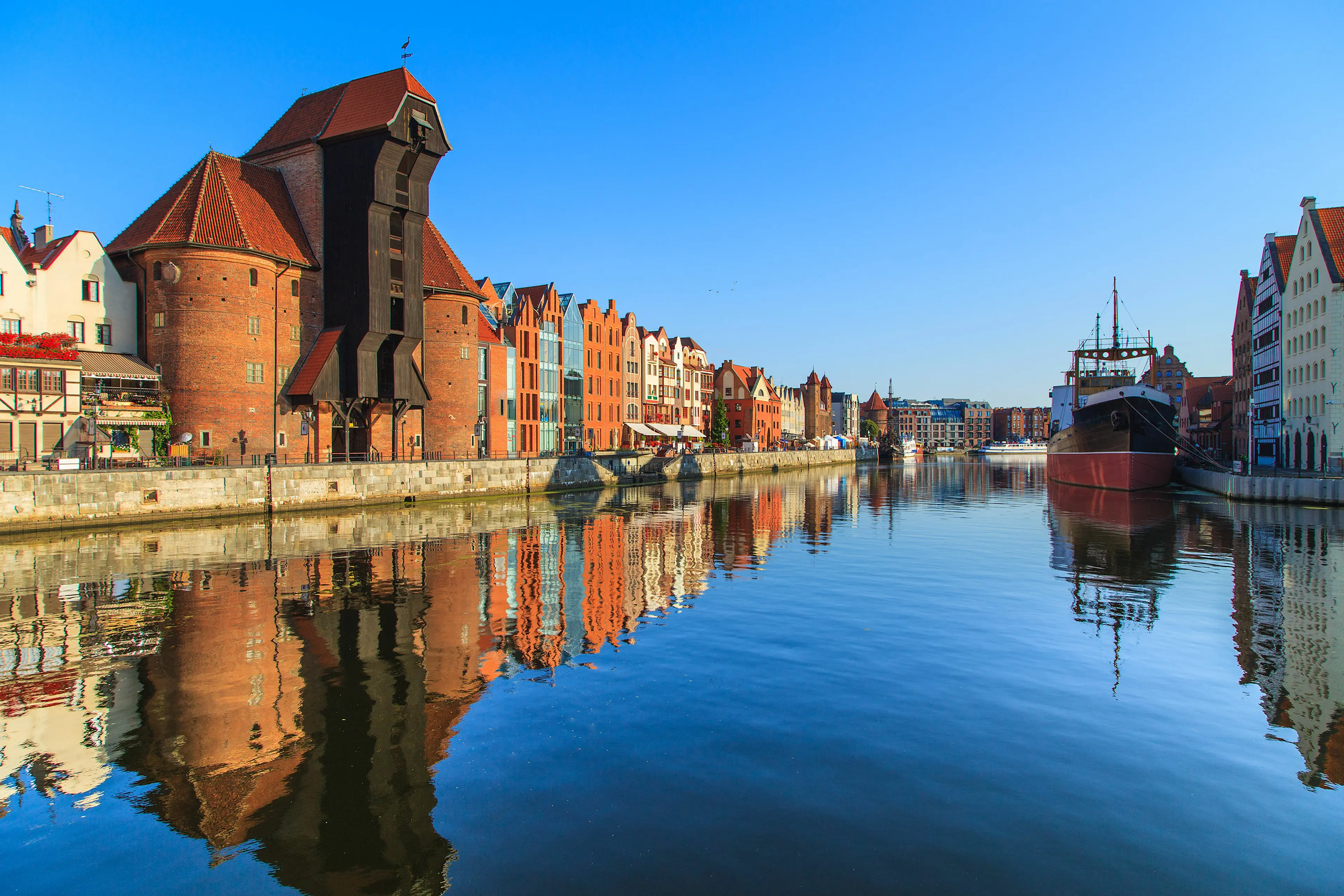
About Gdansk, Poland
Discover the charm of Gdansk, Poland, a vibrant port city with a rich history. Explore the colorful facades of the Old Town, featuring Gothic-style architecture, the iconic Neptune Fountain, and the medieval Gdansk Crane over the Motlawa River. Visit the historic shipyard, the birthplace of the Solidarity movement that reshaped modern Europe. Take a stroll along the Royal Way, once the path of processions for kings. Enjoy the city's thriving arts scene, with numerous galleries and museums, including the world-class Museum of the Second World War. Sample local delicacies like pierogi and fresh Baltic Sea fish. Just a short distance away, you can relax on the sandy beaches of Sopot or delve into the haunting history of the Stutthof Concentration Camp. Gdansk is a captivating blend of culture, history, and natural beauty.
2-Day Itinerary
Day 2
Historical and Natural Wonders
Morning
Begin your second day with a visit to the Westerplatte, the peninsula where World War II began. Explore the historical monuments and the museum on site.
Lunch
Have lunch at a cozy restaurant near Westerplatte. Enjoy traditional Polish cuisine or opt for a lighter meal with a view of the Baltic Sea.
Afternoon
Spend the afternoon exploring the Oliwa Park, a beautiful green space with a variety of plants, a pond, and a 18th-century palace. Don't miss the Oliwa Cathedral, known for its impressive organ.
Dinner
Dine at a restaurant in the Oliwa district, where you can try regional specialties and international cuisine. Enjoy the relaxed atmosphere and the beautiful surroundings.
Evening
End your day with a visit to the Sopot Pier, the longest wooden pier in Europe. Enjoy the sea breeze and the beautiful view of the Baltic Sea under the starry sky.
Attractions in Itinerary (8)
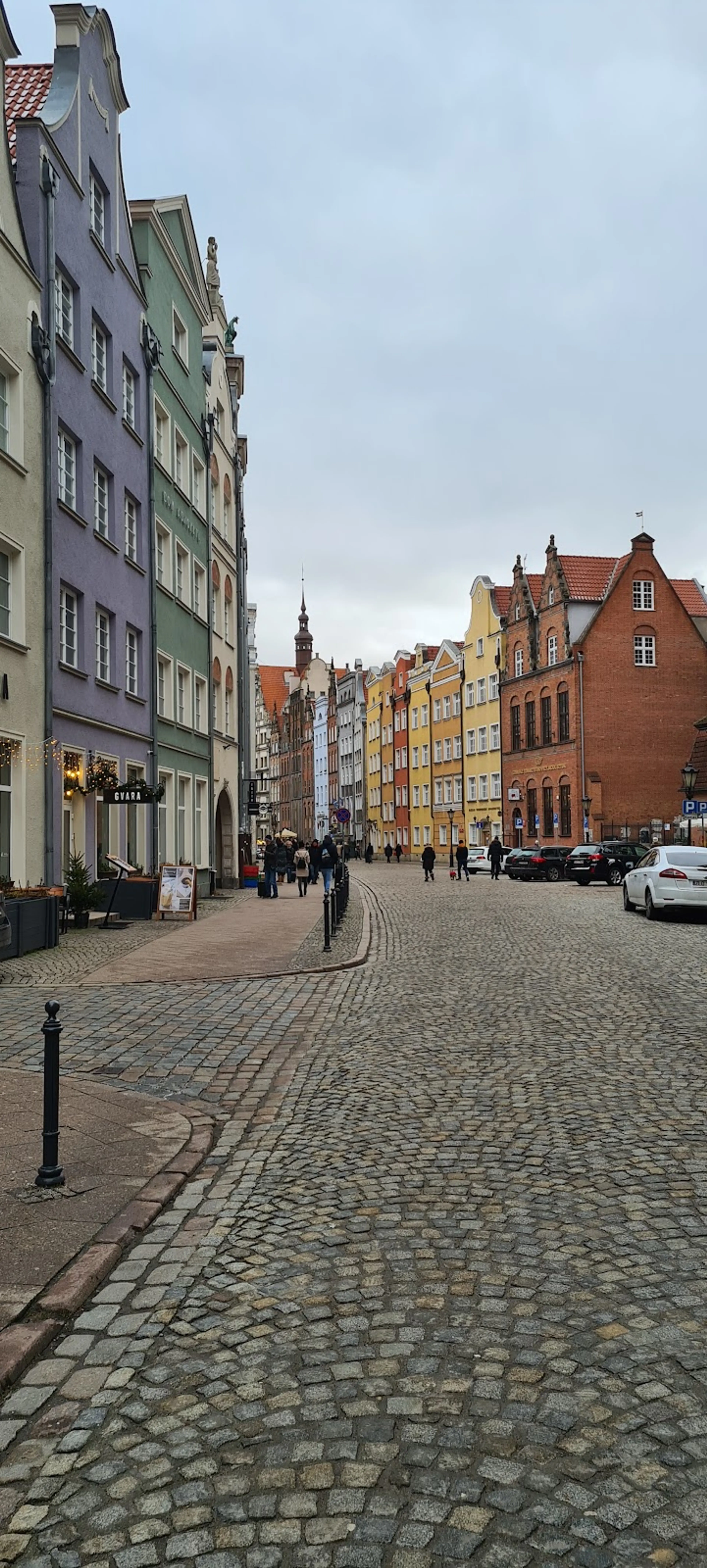
1Gdansk Old Town
Gdansk Old Town is a historic district filled with beautiful architecture, charming streets, and numerous attractions such as the Gdansk Crane, St. Mary's Church, and the Royal Route.
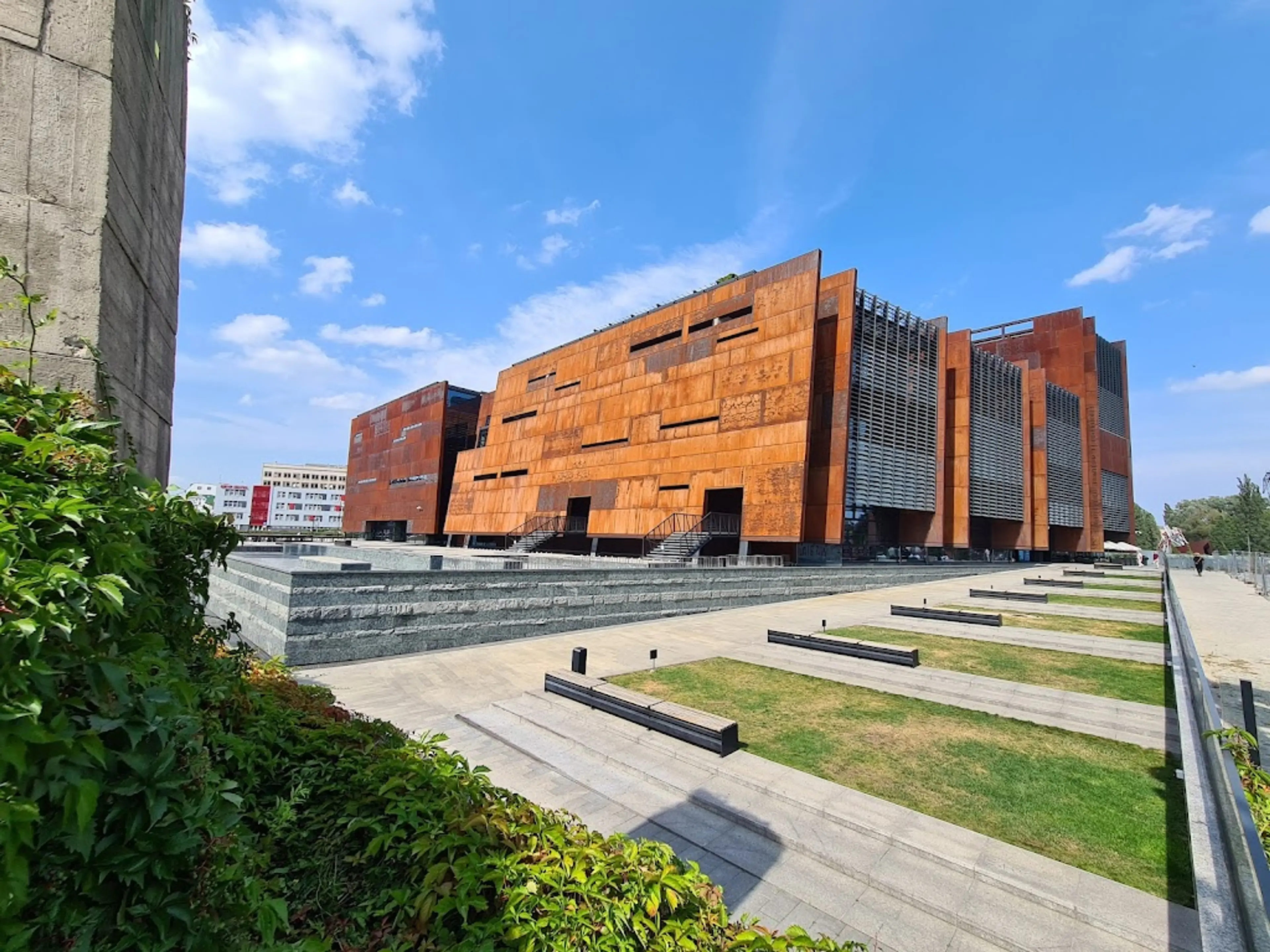
2European Solidarity Centre
The European Solidarity Centre is a museum and library devoted to the history of the Solidarity movement, a peaceful resistance movement that played a significant role in the collapse of communism in Poland.

3Motlawa River Embankment
A beautiful riverside promenade lined with historic buildings, restaurants, and shops. Boat tours are also available for a scenic view of the city.

4Gdansk Marina
Gdansk Marina is a popular spot for boating and yachting enthusiasts. It offers boat rentals and tours, and is a great place to enjoy the scenic views of the city's waterfront.

5Westerplatte
The site of the first battle of World War II, now a monument to the defenders of Poland.
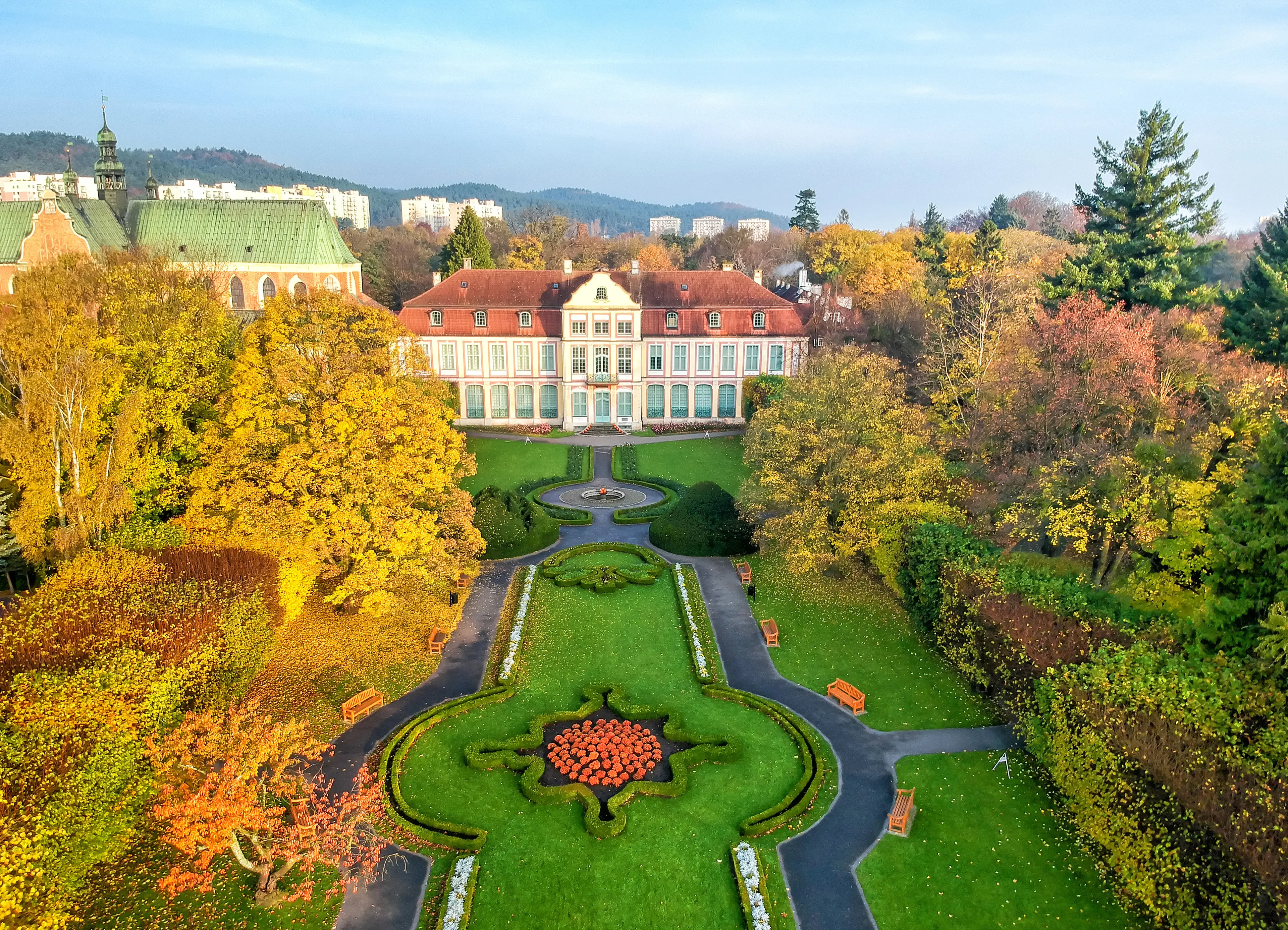
6Oliwa Park
A beautiful park featuring a variety of plant species, fountains, and a palace turned museum.
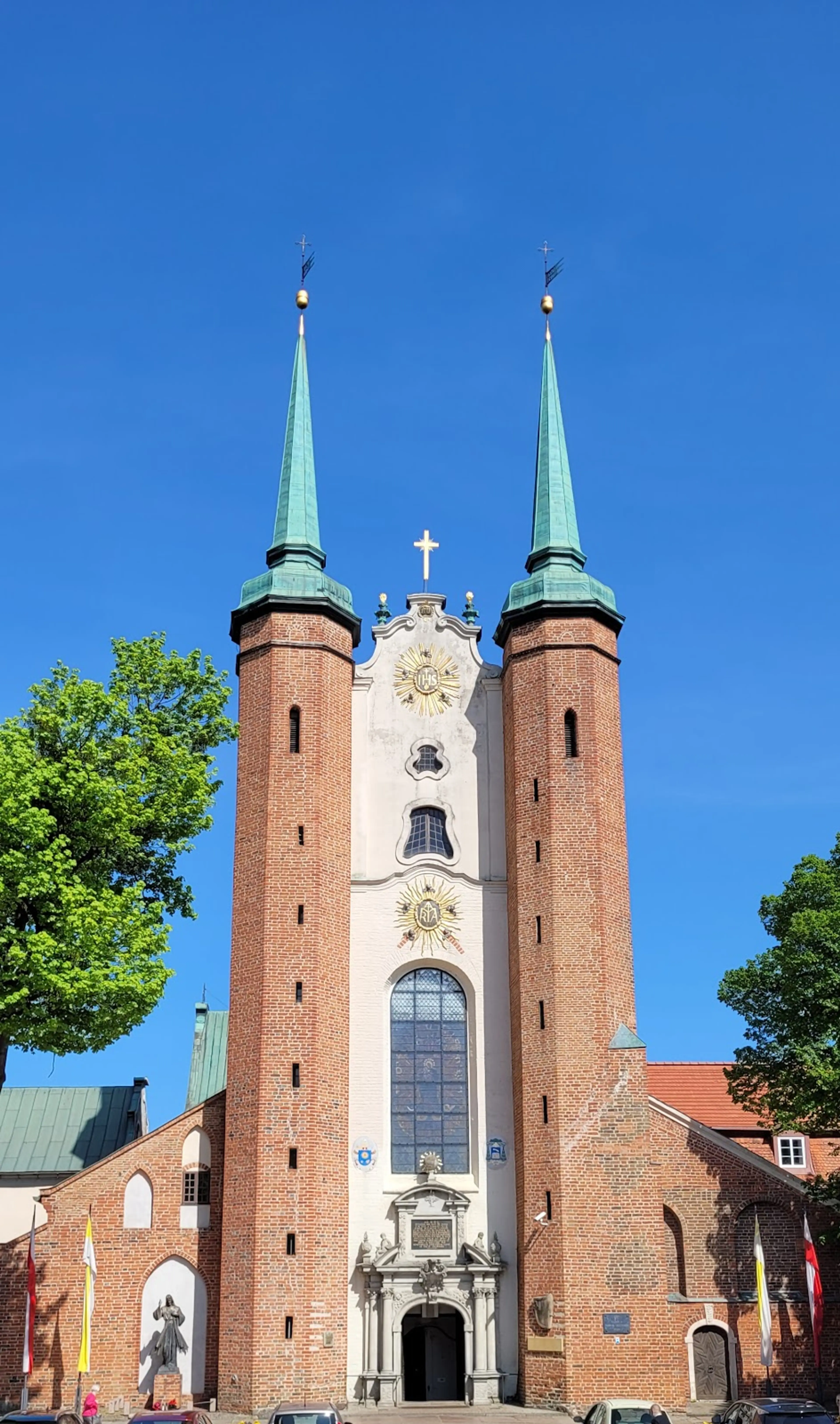
7Oliwa Cathedral
A historic cathedral known for its impressive organ and beautiful architecture.

8Sopot Pier
The longest wooden pier in Europe, offering beautiful views of the Baltic Sea.
Local Food and Drinks (12)
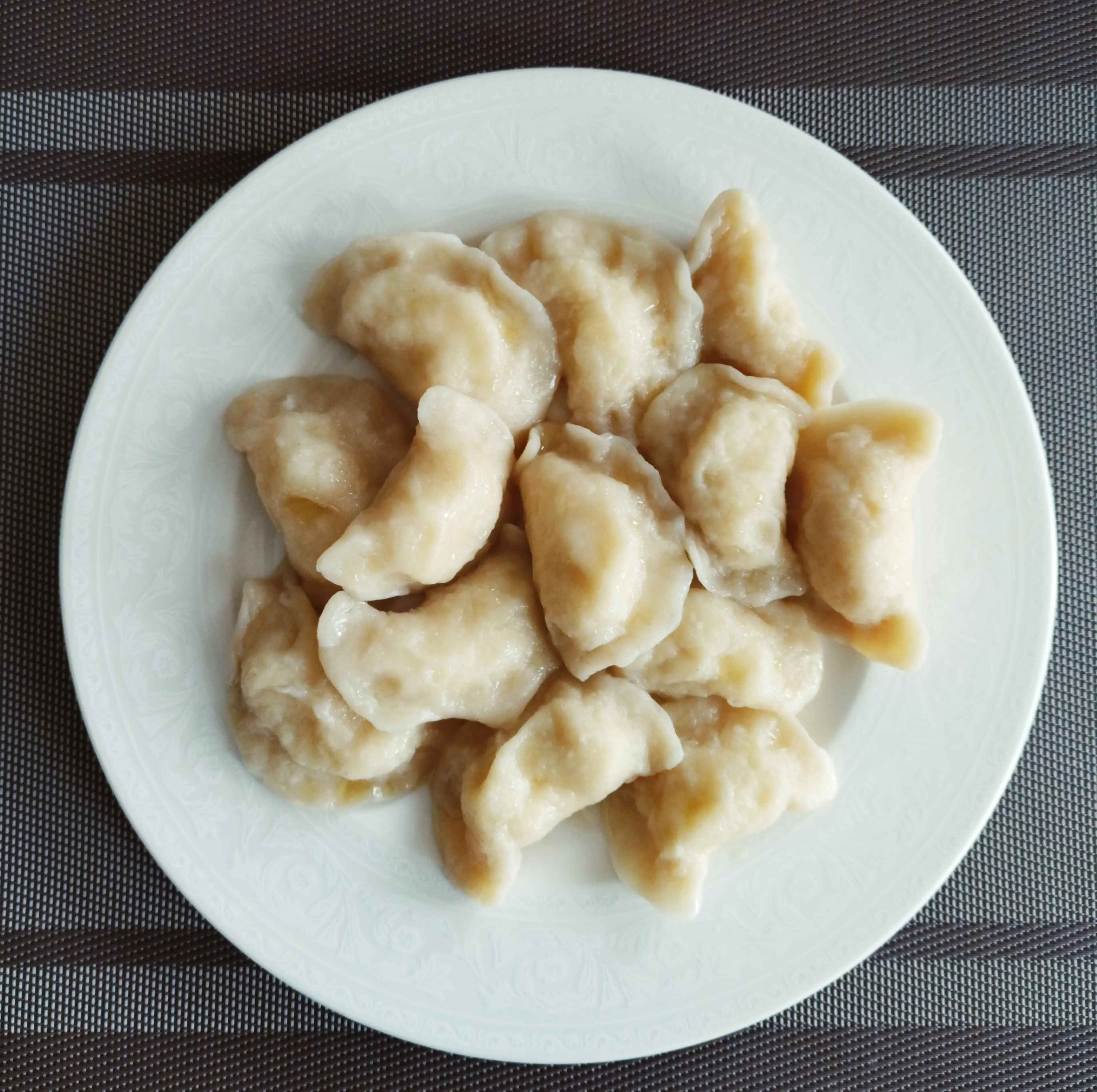
Pierogi
These are traditional Polish dumplings, often filled with cheese, meat, or fruit. They are a must-try when visiting Gdansk.
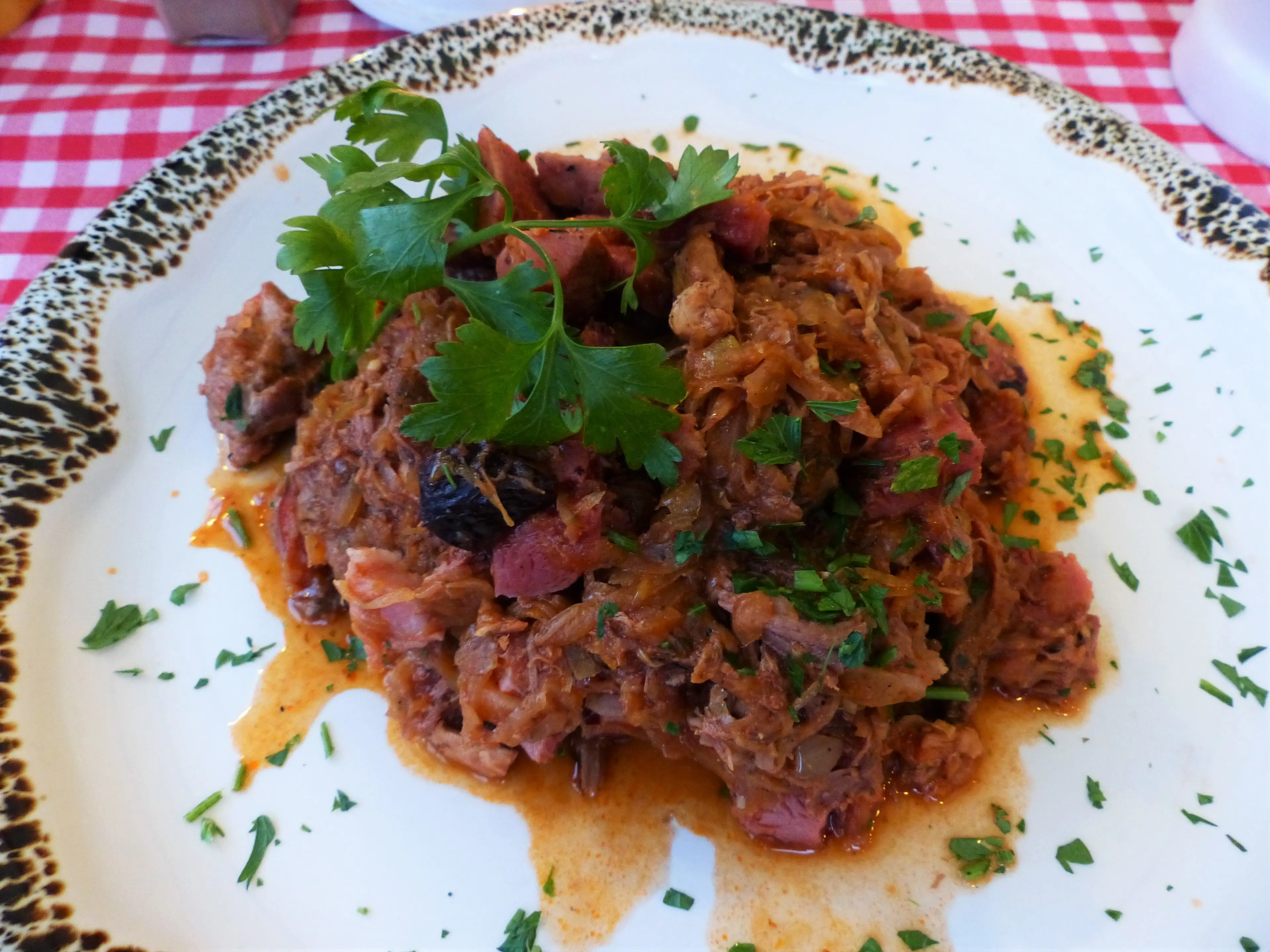
Bigos
This is a traditional Polish stew made from sauerkraut, various meats, and a variety of vegetables. It's a hearty dish perfect for the colder months in Gdansk.

Zurek
A sour rye soup often served in a bread bowl. It's a traditional Polish dish that is particularly popular in Gdansk.
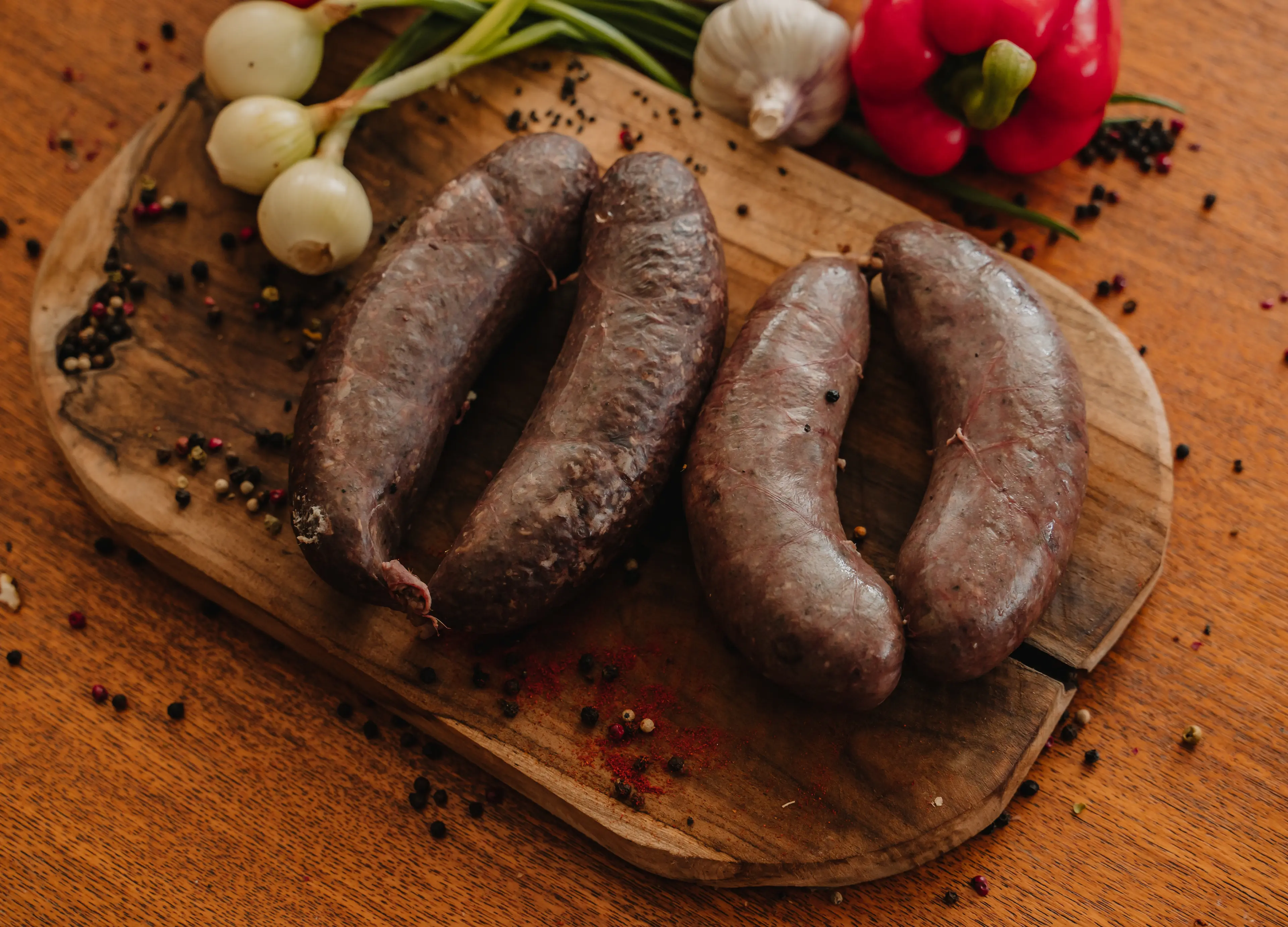
Kaszanka
This is a traditional Polish blood sausage, made from a mixture of pig's blood, pork offal, and buckwheat. It's a unique dish that is popular in Gdansk.
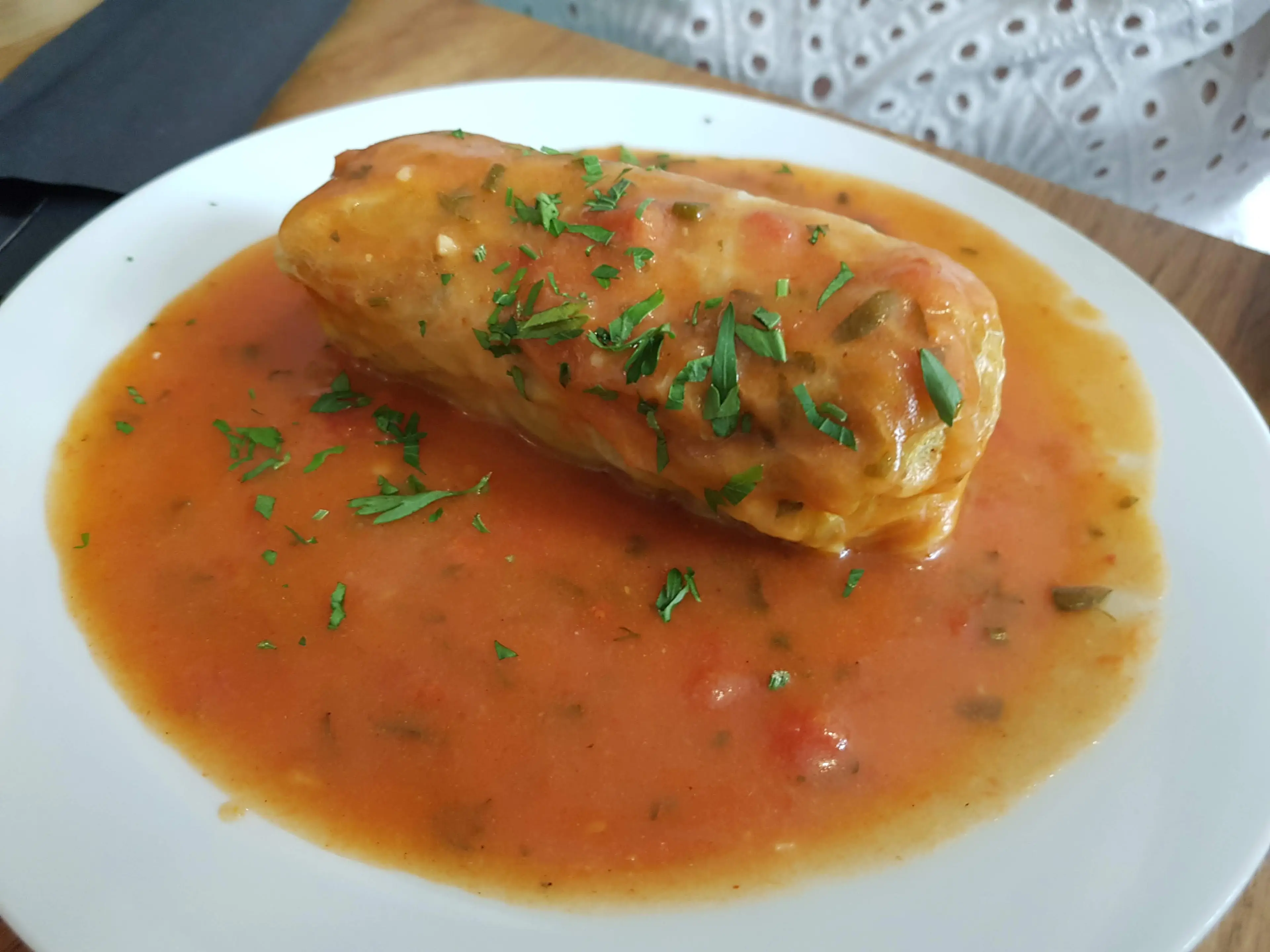
Golabki
These are cabbage leaves stuffed with a mixture of meat and rice. They are a traditional Polish dish that is often served with a tomato or mushroom sauce in Gdansk.
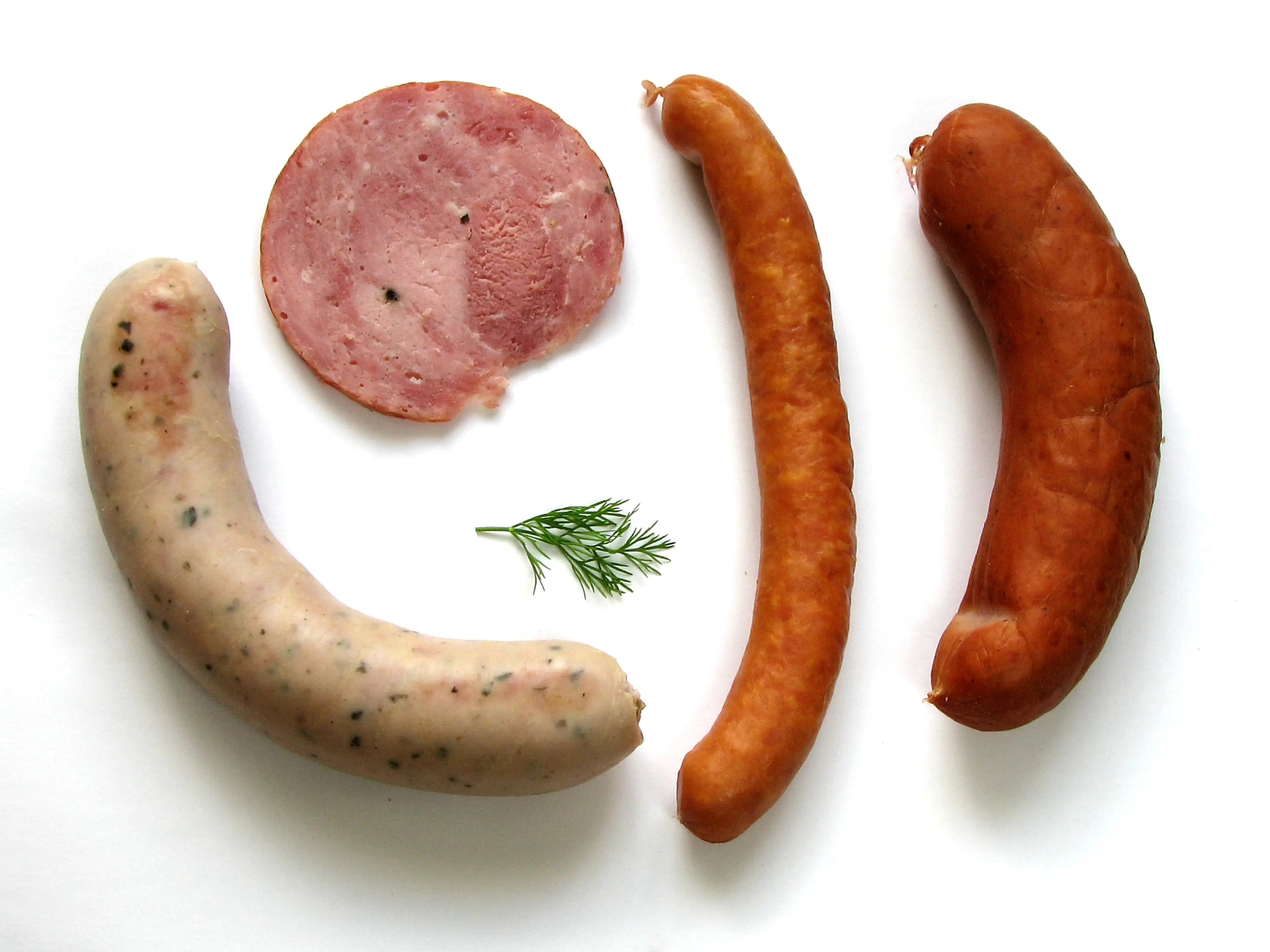
Kielbasa
This is a traditional Polish sausage that is often grilled and served with mustard. It's a popular street food in Gdansk.

Paczki
These are Polish doughnuts, often filled with rose jam and topped with icing sugar. They are a popular treat in Gdansk, especially during the carnival season.
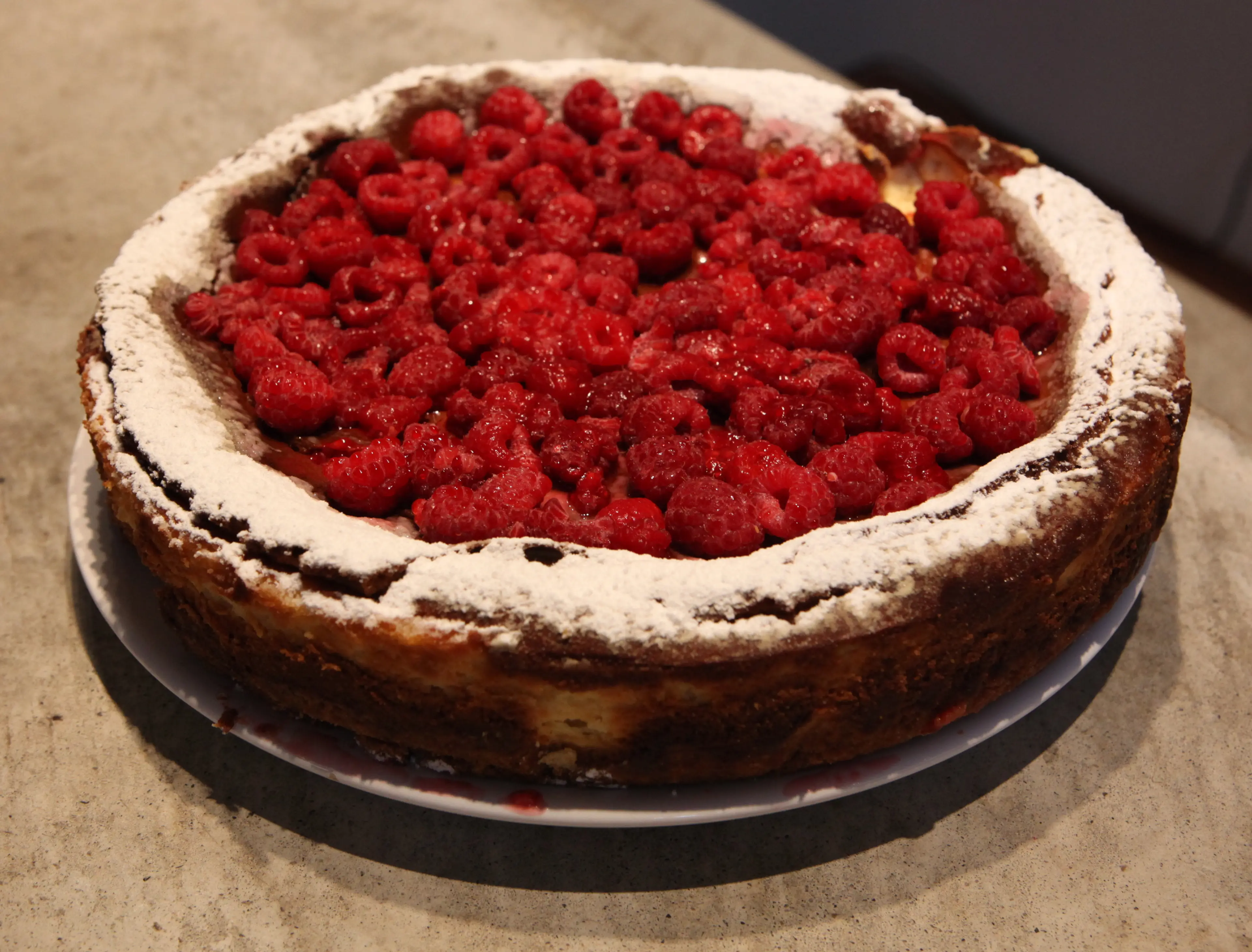
Sernik
This is a traditional Polish cheesecake, made with a unique type of curd cheese. It's a popular dessert in Gdansk.

Zapiekanka
This is a traditional Polish street food, essentially a baguette topped with mushrooms, cheese, and often other toppings, then toasted. It's a popular quick meal in Gdansk.
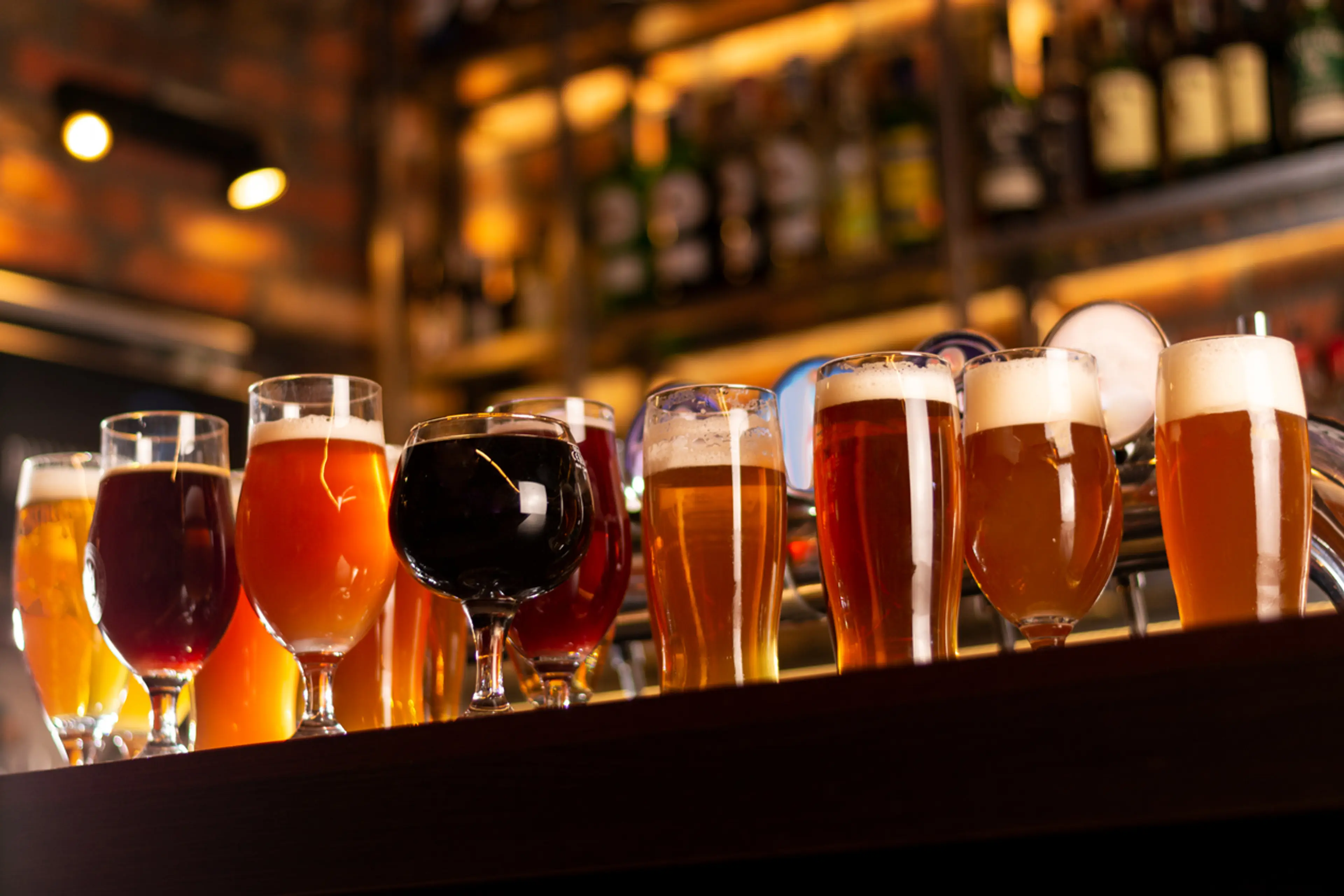
Polish Beer
Piwo is the Polish word for beer. Poland has a rich brewing tradition, and Gdansk is home to many local breweries.
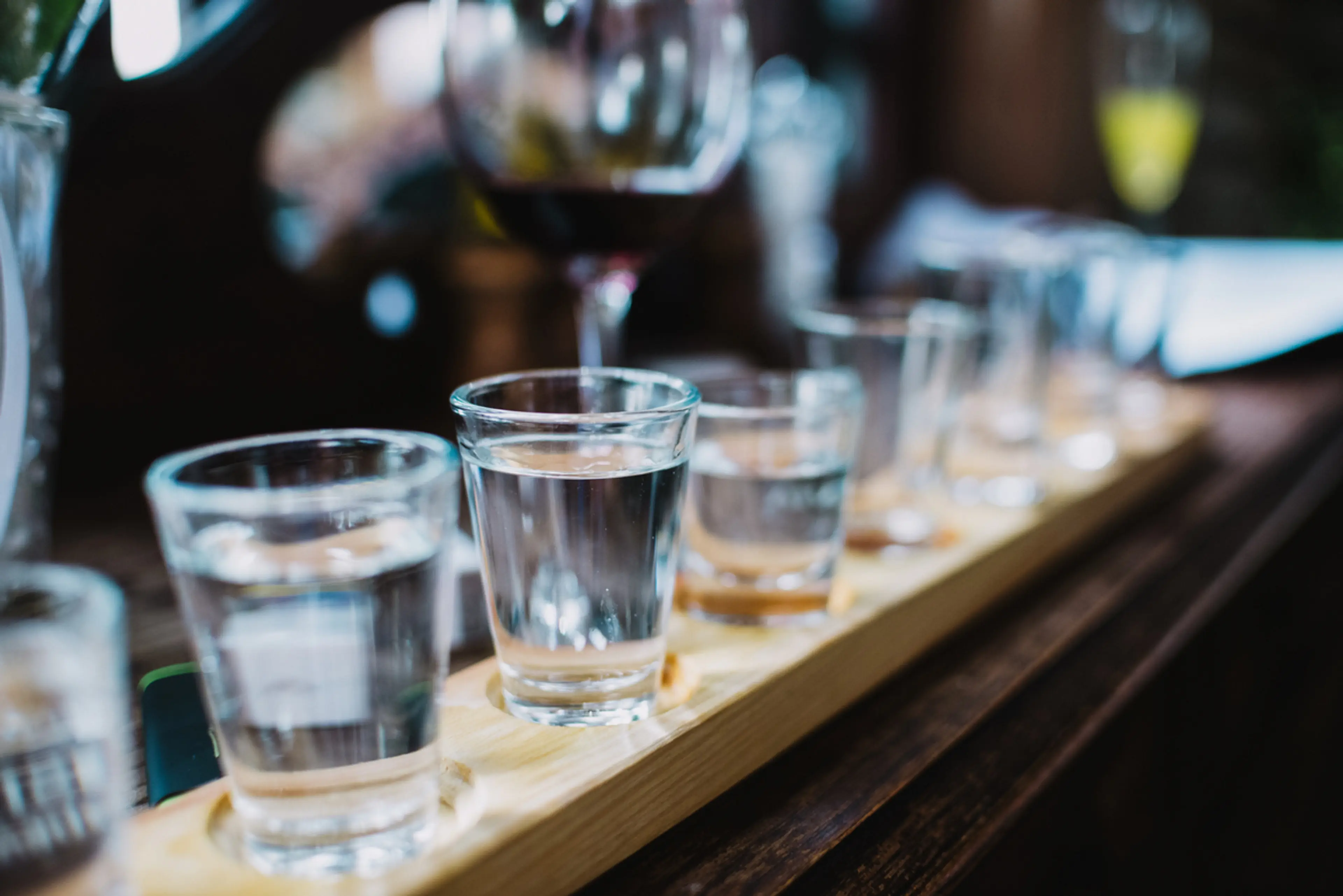
Polish Vodka
Poland is famous for its vodka, and Gdansk is no exception. There are many local varieties to try, often served chilled.

Kompot
This is a traditional Polish drink made from boiled fruit. It's a refreshing non-alcoholic option that is popular in Gdansk.
Best time to visit
The best time to visit Gdansk, Poland is during the summer months, from June to August. During this time, the weather is warm and pleasant, perfect for sightseeing and outdoor activities. The city also hosts numerous festivals and events during the summer, adding to the vibrant atmosphere. However, if you prefer a quieter visit, the shoulder seasons of spring (April to June) and fall (September to October) are also good times to visit, with fewer tourists and mild weather.
How to get around
Tram
Gdansk has an extensive tram network that covers most of the city. It's a convenient and efficient way to get around, especially during peak hours when roads can be congested.
Bus
Buses in Gdansk cover areas that are not reached by the tram network. They are also a good option for reaching destinations outside the city center.
Train
Gdansk has a well-connected train system that links it with other cities in Poland. The city's main station, Gdansk Glowny, is a major hub for both regional and long-distance trains.
Taxi
Taxis are readily available in Gdansk and can be hailed on the street, booked by phone, or through a mobile app. They offer a convenient way to get around, especially if you're traveling with luggage or in a group.
Ridesharing
Ridesharing services like Uber are available in Gdansk. They offer a convenient and often cheaper alternative to traditional taxis. You can book a ride using a smartphone app.
Bicycle
Gdansk is a bike-friendly city with numerous bike lanes and rental services. It's a great way to explore the city at your own pace and get some exercise at the same time.
Ferry
Gdansk is located on the Baltic Sea and has several ferry services. These can be a scenic and relaxing way to travel, especially during the summer months.
Car Rental
Renting a car can be a good option if you plan to explore areas outside of Gdansk or if you prefer the flexibility of driving yourself. However, keep in mind that parking can be challenging in the city center.
Foot
Many of Gdansk's attractions are located within walking distance of each other in the city center. Walking can be a pleasant way to explore the city, especially in the Old Town area.
Important information
Currencyzł PLN
Time zoneUTC+1
Driving sideRight
Emergency phone112, 999
Drinking waterOpt for bottled water
Power sockets
Voltage230 V
Things to know about Gdansk, Poland as a first time visitor
1
The official currency in Poland is the Polish Zloty (PLN), not the Euro. It's best to have some local currency on hand for small expenses.
2
Credit cards are widely accepted in Gdansk, but it's always a good idea to carry some cash for smaller establishments or street vendors.
3
Polish is the official language. While English is commonly spoken in tourist areas and by younger Poles, it's appreciated if you learn a few basic Polish phrases.
4
Public transportation in Gdansk is reliable and extensive, including buses, trams, and a fast urban railway. Consider getting a transport pass if you plan to use it frequently.
5
Tipping is customary in Poland. It's typical to leave a 10-15% tip in restaurants, cafes, and for taxi drivers.
6
Poland is in the Central European Time Zone (CET), which is 1 hour ahead of Greenwich Mean Time (GMT+1).
7
Poland has a moderate climate, with cold winters and mild summers. Average temperatures range from 20°F to 30°F (-6°C to -1°C) in winter and 60°F to 75°F (15°C to 24°C) in summer.
8
Poland uses type E power sockets. The standard voltage is 230 V, and the standard frequency is 50 Hz. You may need a power plug adapter or voltage converter.
9
Poland is generally safe for tourists, but like any city, it's important to be aware of your surroundings and keep an eye on your belongings.
10
Polish cuisine is hearty and diverse. Don't miss out on trying local dishes like pierogi (dumplings), bigos (hunter's stew), and gołąbki (stuffed cabbage rolls).
11
Tap water is safe to drink in Gdansk, but bottled water is widely available if you prefer.
12
Poland is part of the Schengen Agreement, so EU citizens can enter with a valid ID card. Non-EU citizens may require a visa.
13
Pharmacies in Poland are marked with a green cross. Over-the-counter medication is widely available, but specific prescriptions may require a local doctor's note.
14
The emergency number in Poland is 112. This number can be dialed free of charge from any phone, including mobiles.
15
Poland has strict laws against drinking alcohol in public places, with hefty fines for those caught.
16
Smoking is banned in public places in Poland, including restaurants, bars, and public transportation.
17
Poland is a predominantly Catholic country, and many Poles observe religious holidays. Some shops and restaurants may be closed on these days.
18
Gdansk is a pedestrian-friendly city, with many of the main attractions within walking distance. Comfortable shoes are recommended.
19
Poland has a zero-tolerance policy for driving under the influence of alcohol. The legal blood alcohol limit is 0.02%.
20
If you're planning to visit the beach, note that the Baltic Sea can be quite cold, even in summer. The average water temperature in August, the warmest month, is around 63°F (17°C).
Basic Polish to know as a first time visitor
English phrase | Native phrase | Pronunciation | When to use it |
|---|---|---|---|
Hello | Cześć | Cheh-sh-ch | Greeting someone |
Goodbye | Do widzenia | Doh vee-dzen-ya | Leaving or saying goodbye |
Please | Proszę | Proh-sheh | Making a request |
Thank you | Dziękuję | Jenkoo-yeh | Expressing gratitude |
Yes | Tak | Tahk | Agreeing or confirming |
No | Nie | Nee-eh | Disagreeing or denying |
Excuse me | Przepraszam | Pshe-pra-sham | Getting attention or apologizing |
I don't understand | Nie rozumiem | Nee-eh roh-zoo-myem | When you don't understand something |
Do you speak English? | Czy mówisz po angielsku? | Chih mooh-veesh poh ahn-gyel-skoo? | Trying to find someone who speaks English |
I'm lost | Zgubiłem się | Zgoo-byehm sheh | When you're lost |
Where is...? | Gdzie jest...? | Gdzie yest | Asking for directions |
Bathroom | Łazienka | Wah-zyen-kah | Looking for a bathroom |
Help | Pomoc | Poh-mohts | In case of emergency |
Food | Jedzenie | Yed-zhen-ee-eh | When you're looking for food |
Water | Woda | Voh-dah | When you're thirsty |
Beer | Piwo | Pee-voh | Ordering a beer |
Wine | Wino | Vee-noh | Ordering wine |
Check, please | Rachunek, proszę | Ra-hoo-nek proh-sheh | Asking for the bill |
How much does it cost? | Ile to kosztuje? | Ee-leh toh kosh-too-yeh? | Asking for the price |
Good night | Dobranoc | Doh-brah-nots | Saying goodnight |
Packing List
Clothing
Underwear
Socks
T-shirts
Pants/Jeans
Comfortable walking shoes
Sweater or jacket (depending on the season)
Pajamas
Swimsuit (if planning to visit the beach or a spa)
Scarf, gloves and hat (for winter season)
Toiletries
Toothbrush and toothpaste
Deodorant
Shampoo and conditioner
Body wash or soap
Razor and shaving cream
Makeup and makeup remover
Hairbrush or comb
Sunscreen (for summer season)
Hand sanitizer
Travel documents and essentials
Passport or ID
Airline tickets
Hotel reservation confirmation
Travel insurance documents
Credit and debit cards
Cash in local currency (Polish złoty)
Emergency contacts and addresses
Electronics and gadgets
Smartphone and charger
Headphones
Camera and charger
Power bank
Travel adapter (Poland uses type E plug)
E-reader or tablet (optional)
Miscellaneous items
Travel guidebook for Gdansk
Travel pillow and eye mask
Snacks for the journey
Reusable water bottle
Umbrella or raincoat
First aid kit
Notebook and pen
Books or magazines for the journey
Weather Conditions
When visiting Gdansk, Poland, it's important to be prepared for a variety of weather conditions. The city experiences a maritime climate, which means mild summers and relatively cold winters. During the summer months, from June to August, temperatures typically range from 60°F to 70°F (15°C to 21°C). It's the perfect time for outdoor activities and exploring the city's beautiful architecture. However, it's advisable to carry a light jacket or sweater for the cooler evenings and occasional rain showers. In the autumn months, September to November, temperatures drop to between 45°F and 60°F (7°C to 15°C). This period can be quite rainy, so packing waterproof clothing and an umbrella is recommended. Winter, from December to February, can be quite cold with temperatures often dropping to between 25°F and 35°F (-4°C to 2°C). Snowfall is common during these months, so if you're planning a winter visit, be sure to pack warm clothing, including a heavy coat, gloves, and a hat. Spring, from March to May, sees temperatures rise gradually from 35°F to 60°F (2°C to 15°C). The weather can be unpredictable during this season, with a mix of rain, sunshine, and sometimes even snow in the early part of the season. Layered clothing would be the best option during this time. Regardless of when you visit, it's always a good idea to check the local weather forecast before your trip to ensure you're packing appropriately. Enjoy your visit to Gdansk!
| Month | Hi / Lo (°C) | Weather Overview |
|---|---|---|
January | 2° / -3° | January is the coldest month in Gdansk, with temperatures often below freezing. Dress warmly and enjoy the beautiful winter scenery. |
February | 3° / -3° | February is still quite cold, but the days are getting longer. It's a great time to visit museums and indoor attractions. |
March | 7° / -1° | March sees the beginning of spring, with temperatures slowly rising. However, it's still chilly, so pack some warm clothes. |
April | 12° / 2° | April is a transitional month with temperatures varying. It can be a great time to visit if you prefer fewer crowds. |
May | 17° / 7° | May brings warmer weather and the city starts to bloom. It's a great time to explore the city's parks and outdoor attractions. |
June | 21° / 11° | June is the start of the summer season, with long days and warm temperatures. It's perfect for sightseeing and enjoying the Baltic Sea beaches. |
July | 23° / 13° | July is the warmest month in Gdansk, with plenty of sunshine. It's the best time for outdoor activities and festivals. |
August | 23° / 13° | August is still warm and sunny, but with fewer tourists. It's a great time to enjoy the city's cafes and restaurants. |
September | 19° / 9° | September sees the start of autumn, with cooler temperatures and beautiful fall colors. It's a great time for hiking and photography. |
October | 13° / 5° | October is a quiet month in Gdansk, with fewer tourists and cooler temperatures. It's a good time to visit museums and historical sites. |
November | 7° / 1° | November is a chilly month, with shorter days and often overcast skies. It's a good time to enjoy the city's indoor attractions. |
December | 4° / -2° | December is a festive month in Gdansk, with Christmas markets and holiday decorations. It's cold, so pack warm clothes and enjoy the festive atmosphere. |
Did you know?
Places near by Gdansk, Poland
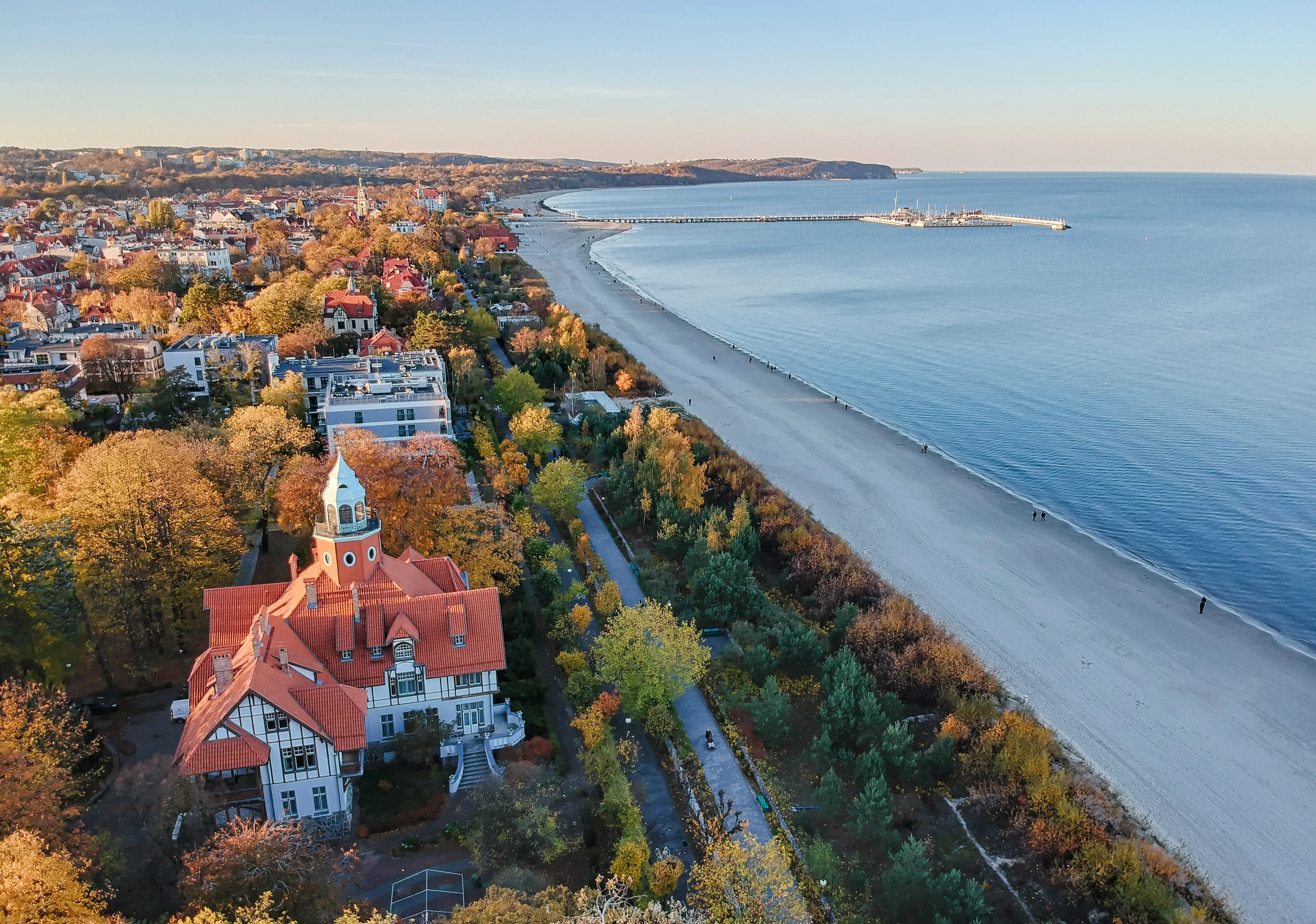
Sopot
A famous seaside resort town with beautiful beaches and a vibrant nightlife.
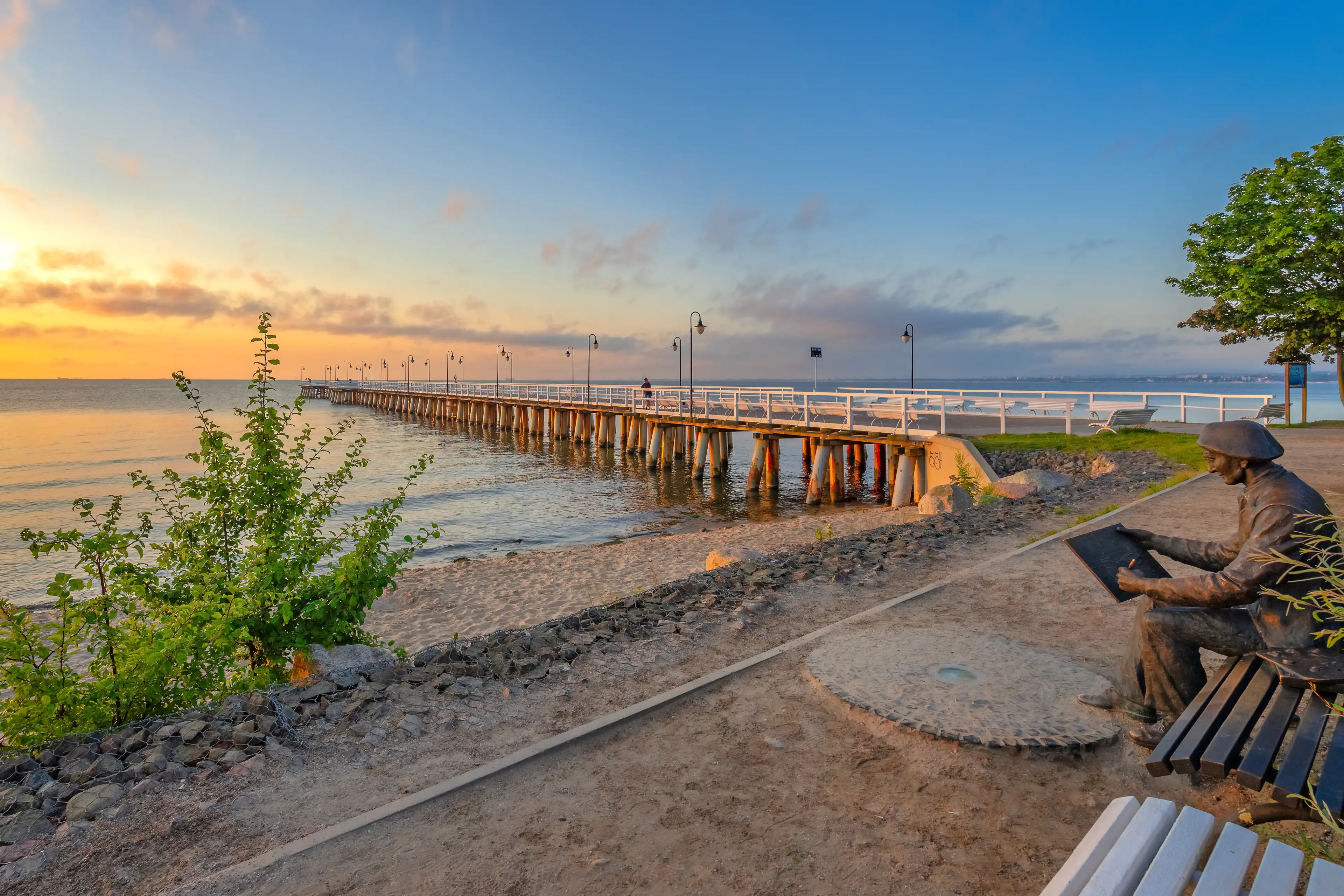
Gdynia
A modern city known for its shipyards and beautiful sea views.
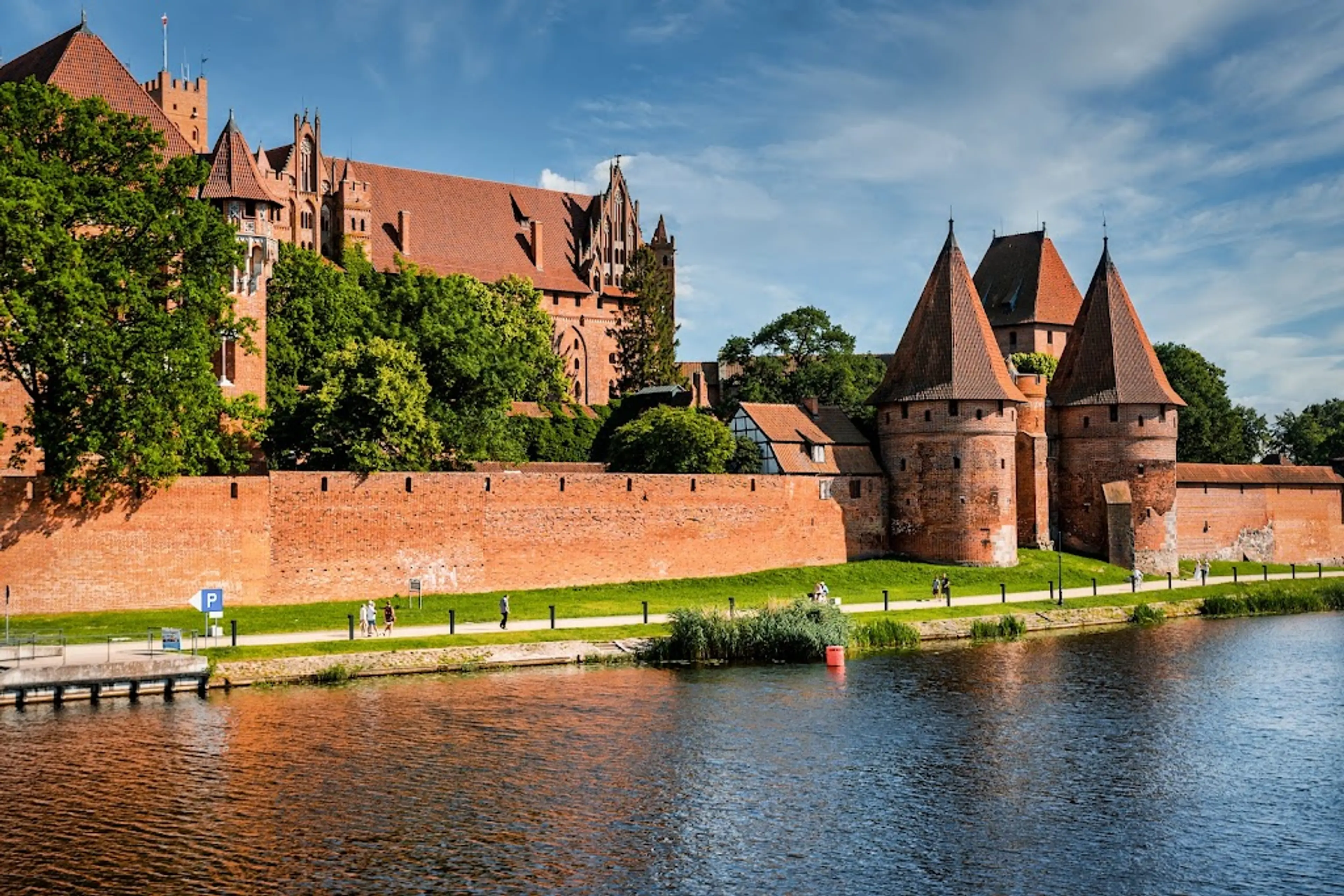
Malbork Castle
The largest castle in the world by land area, a UNESCO World Heritage Site.
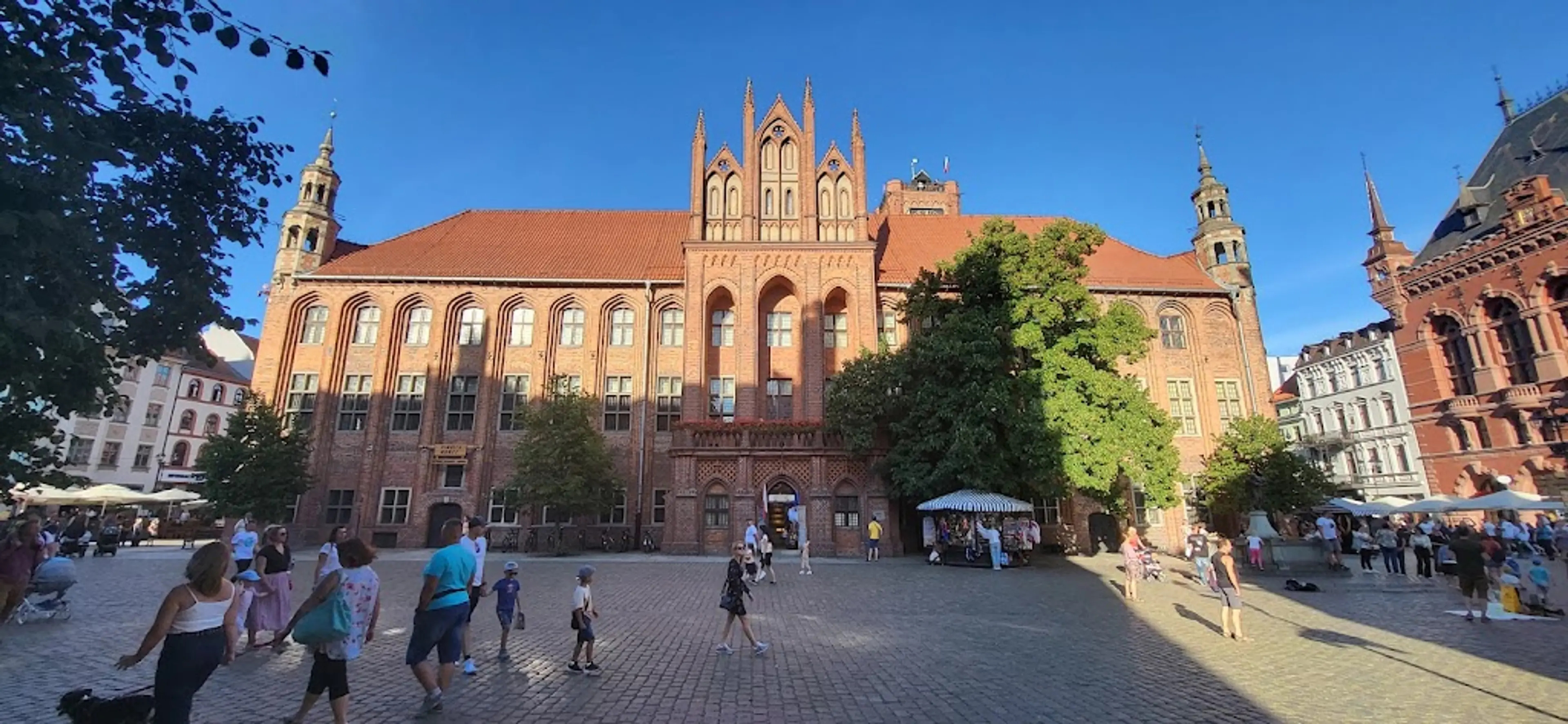
Torun
A medieval city, birthplace of Nicolaus Copernicus, known for its gingerbread.
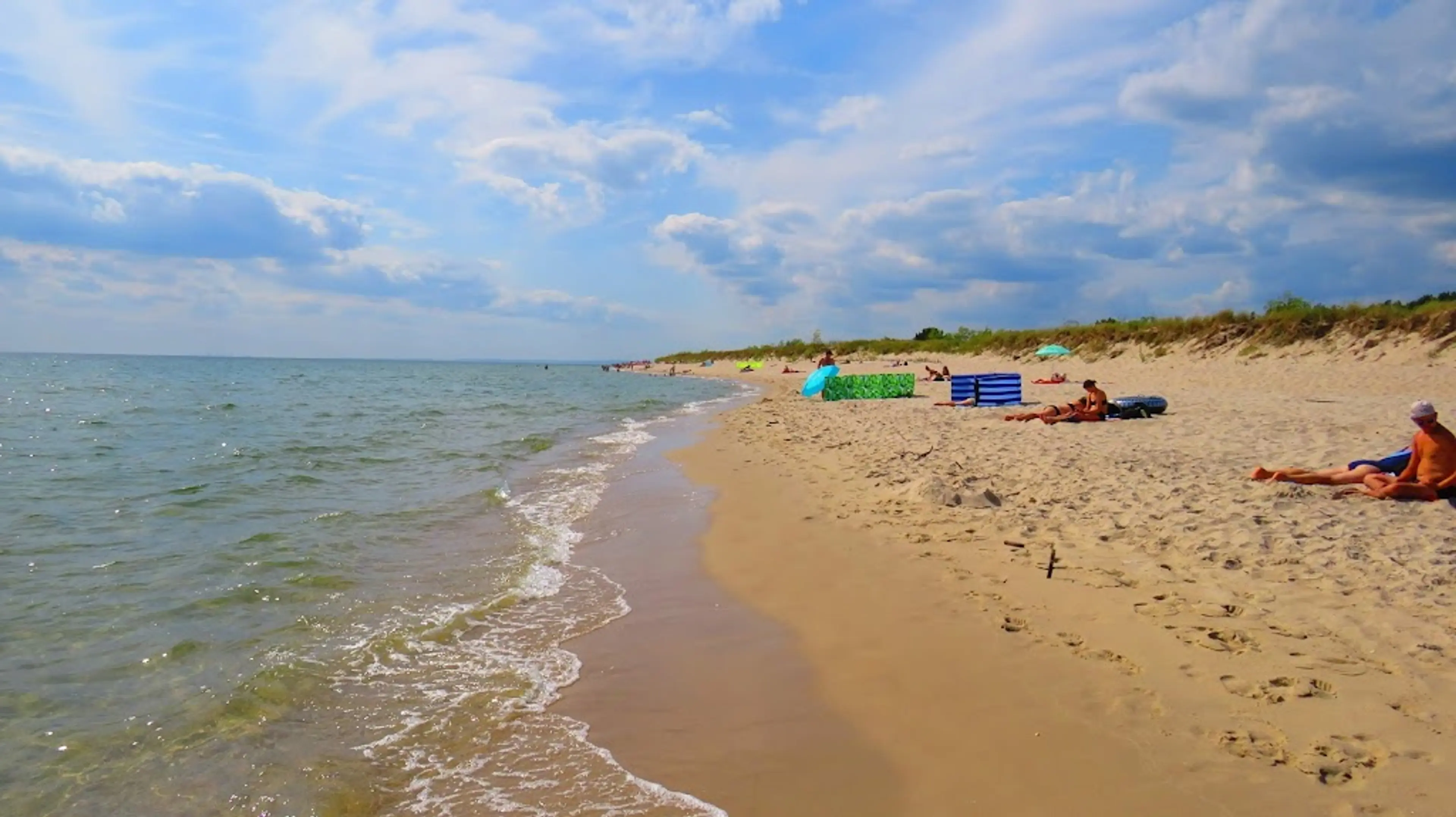
Hel Peninsula
A long sand bar peninsula, popular for its beaches and nature reserves.
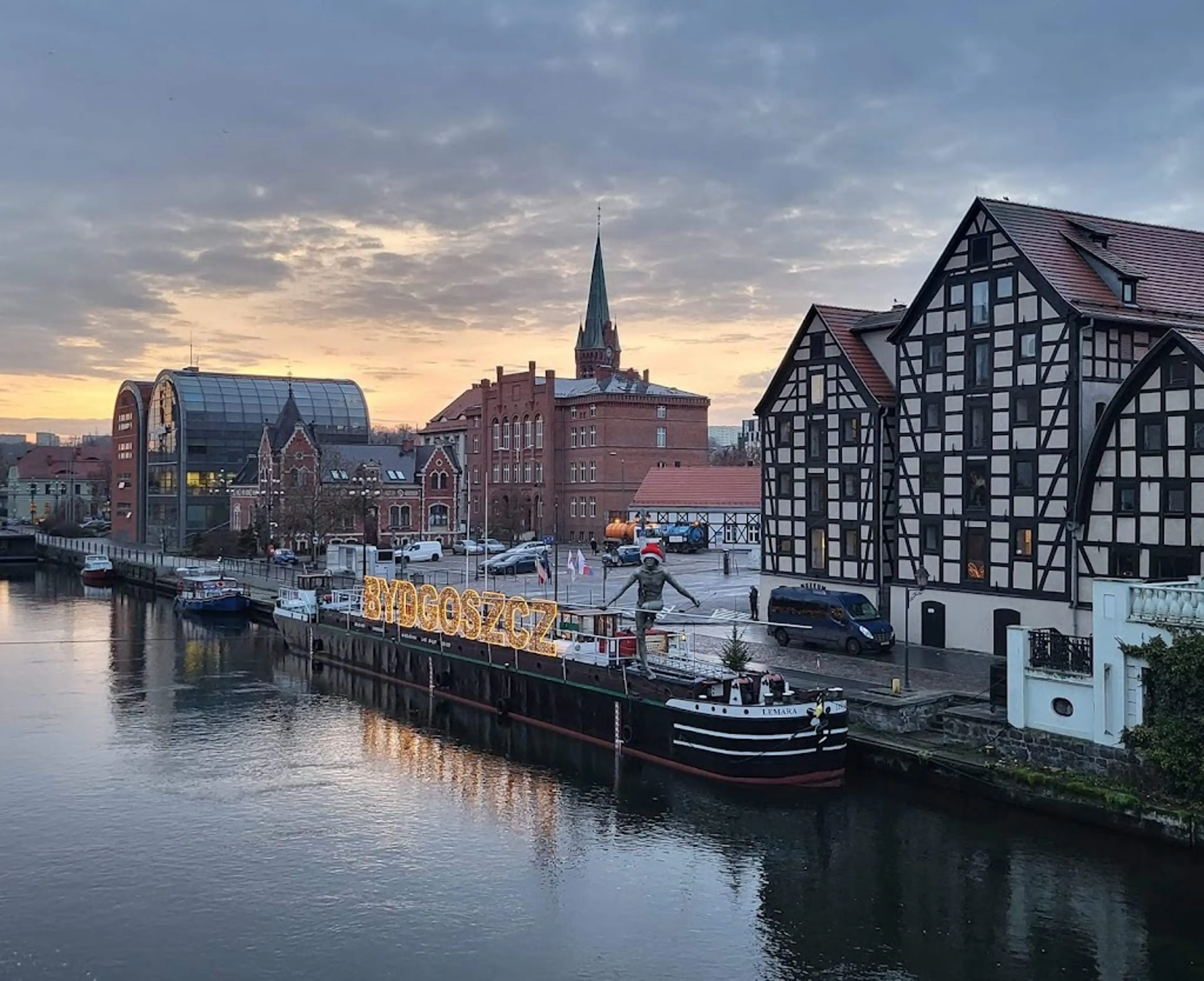
Bydgoszcz
A city known for its beautifully preserved old town and water canal system.
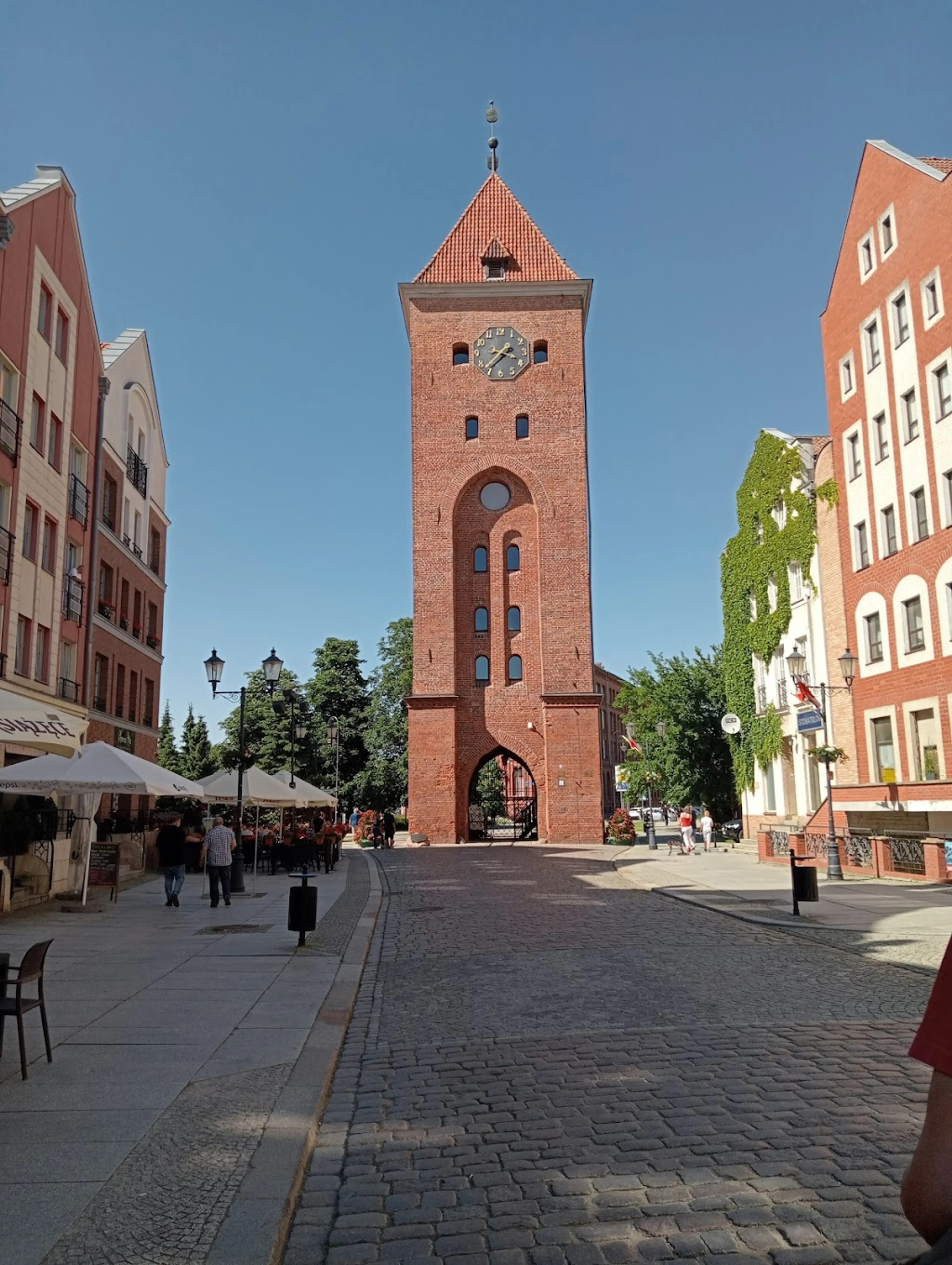
Elblag
A city known for its canal, where boats are carried over hills in rail-mounted trolleys.
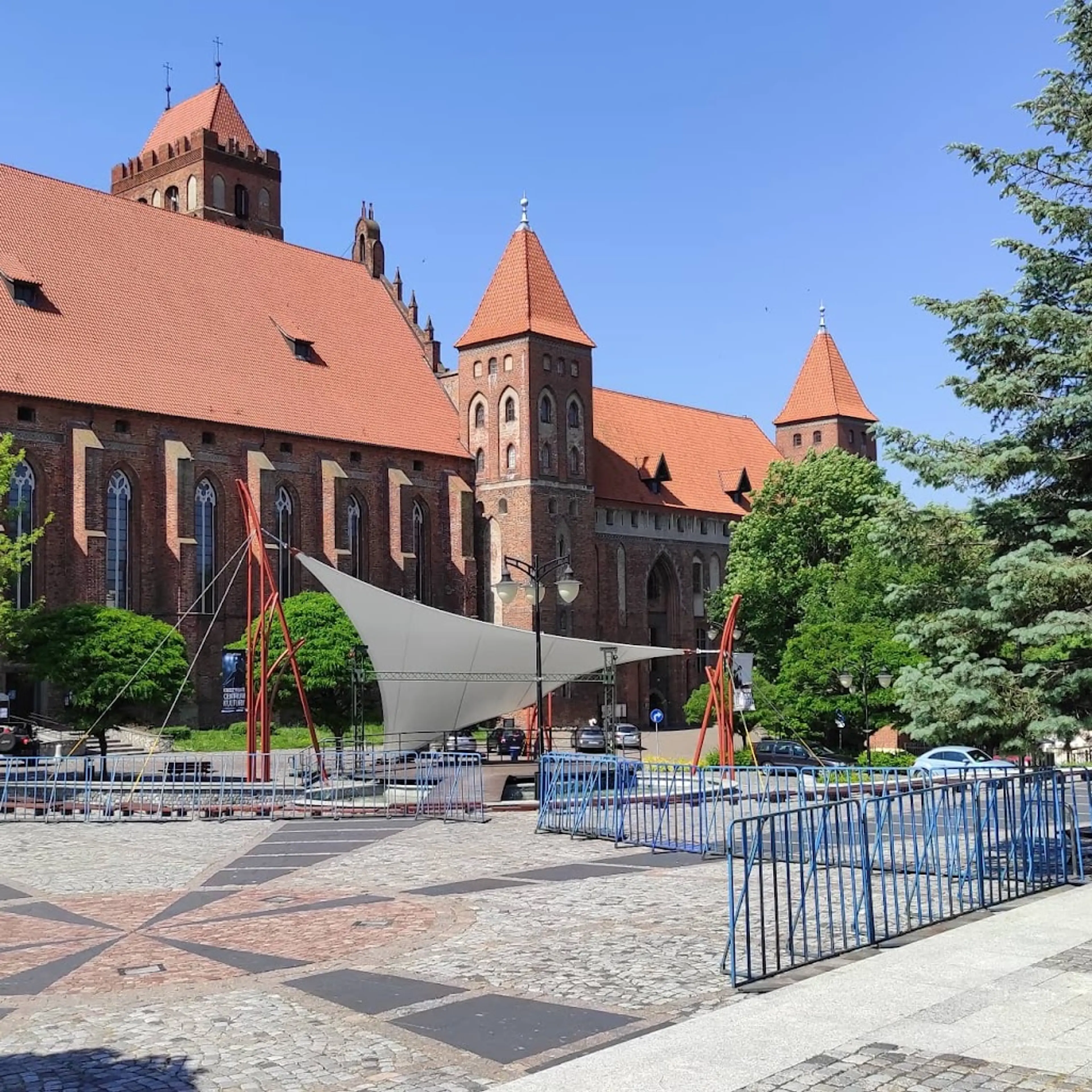
Kwidzyn
Home to a beautiful Gothic castle and cathedral complex.
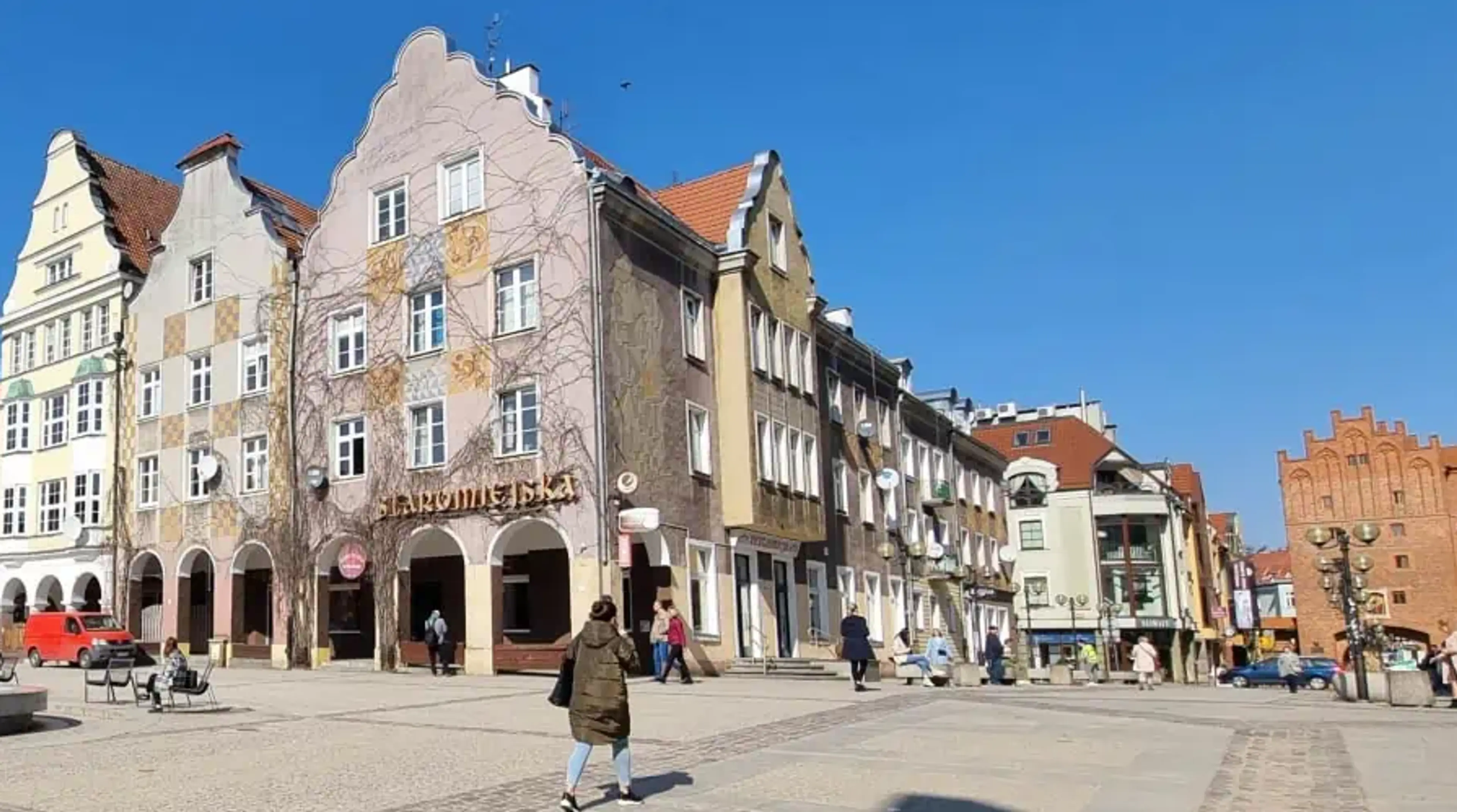
Olsztyn
A city surrounded by lakes, known for its Gothic castle where Nicolaus Copernicus once lived.
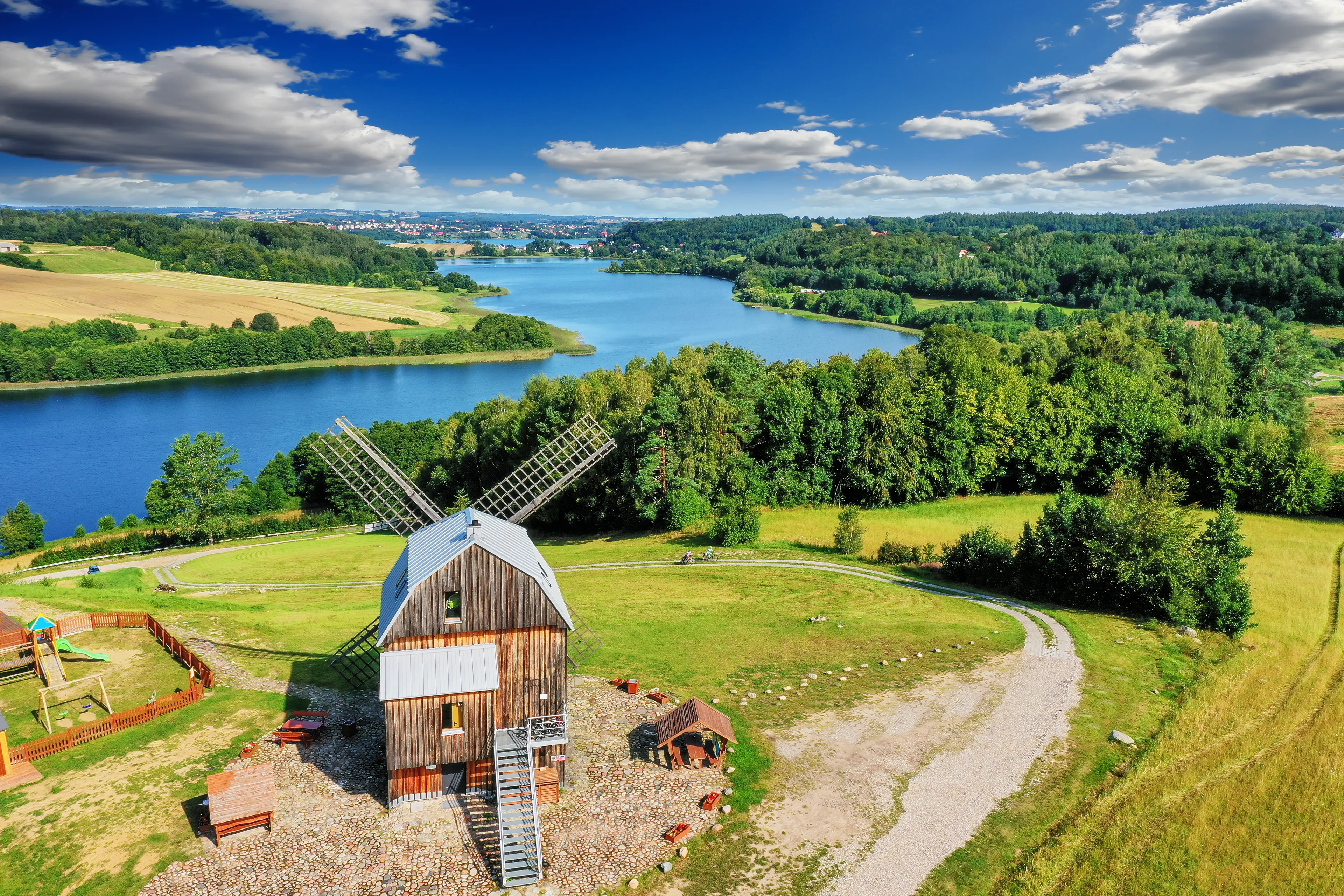
Kaszuby
A picturesque region known for its unique Kaszubian culture and beautiful landscapes.